Every year during awards season — which seems to last longer than the NBA season and have more flagrant fouls — outrage is expressed over those who are snubbed. In typical shoot-from-the-lip fashion, Kanye West on Sunday night denounced Beck winning the Album of the Year instead of Beyonce. “I just know that the Grammys, if they want real artists to keep coming back, they need to stop playing with us,” he threatened. “We ain’t gonna play with them no more. And Beck needs to respect artistry and he should’ve given his award to Beyonce.”
There are several obvious things wrong with that outburst, including that it’s an insult to Beyonce as an artist and as a woman. But, more important, it once again highlights the monumental significance of Beyonce as a cultural icon that goes beyond her music. When we look more closely, we can see that whether she’s being defended or criticized, she’s often treated as a symbol in service of a sinister agenda.
Let’s start with Kanye’s misguided comments.
Beyonce has won 20 Grammys and, with 52 nominations, is the third-most-nominated woman in history. Beck has 5 Grammys out of 16 nominations. In 2009, The Observer crowned her the Artist of the Decade, while Billboard named her the Top Female Artist and Top Radio Songs Artist of the Decade. Since then she’s won a mansion full of awards and has sold more than 118 million records worldwide. Her artistry has been acknowledged.
See 34 Gorgeous Photos of Beyoncé
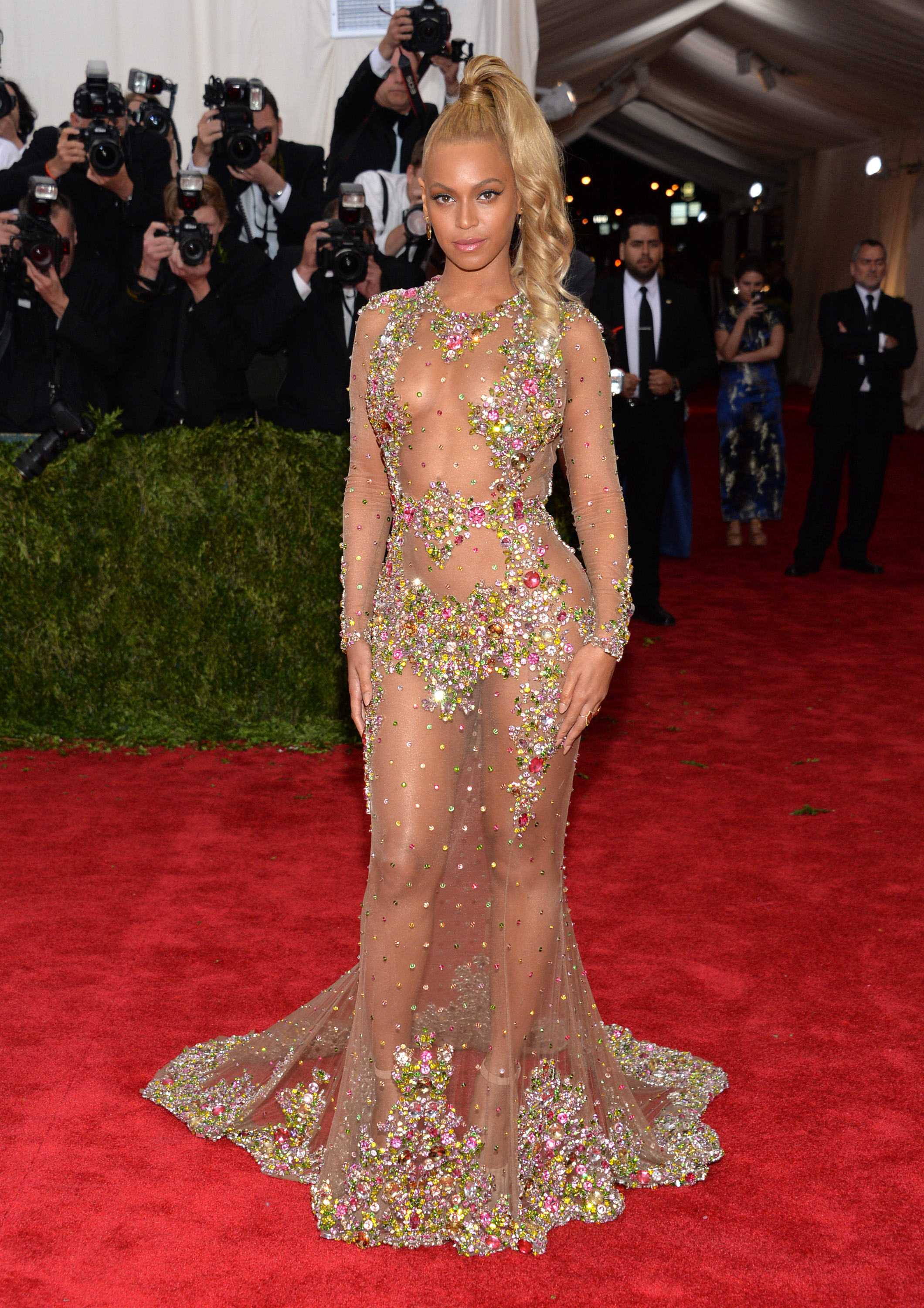
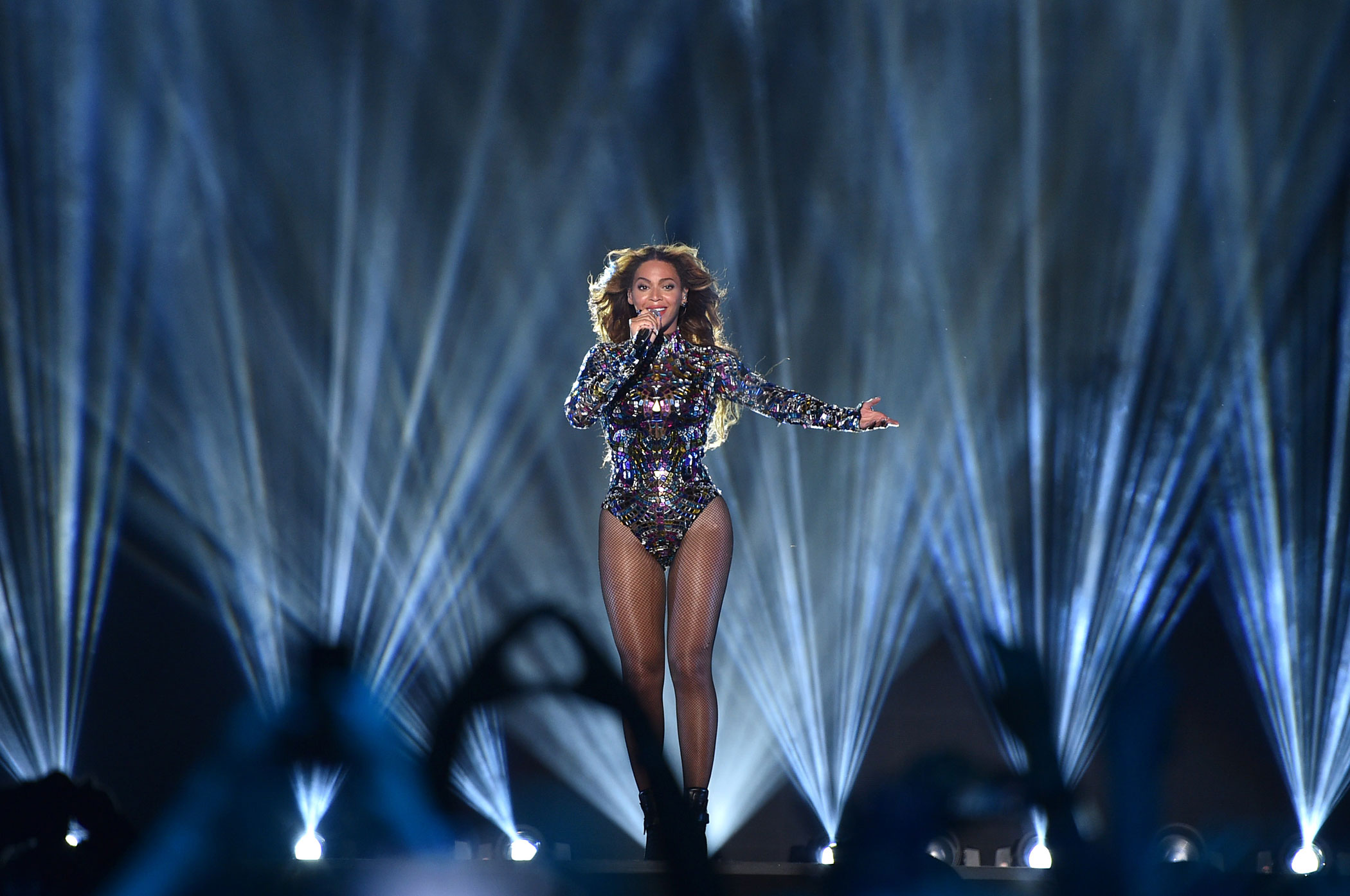
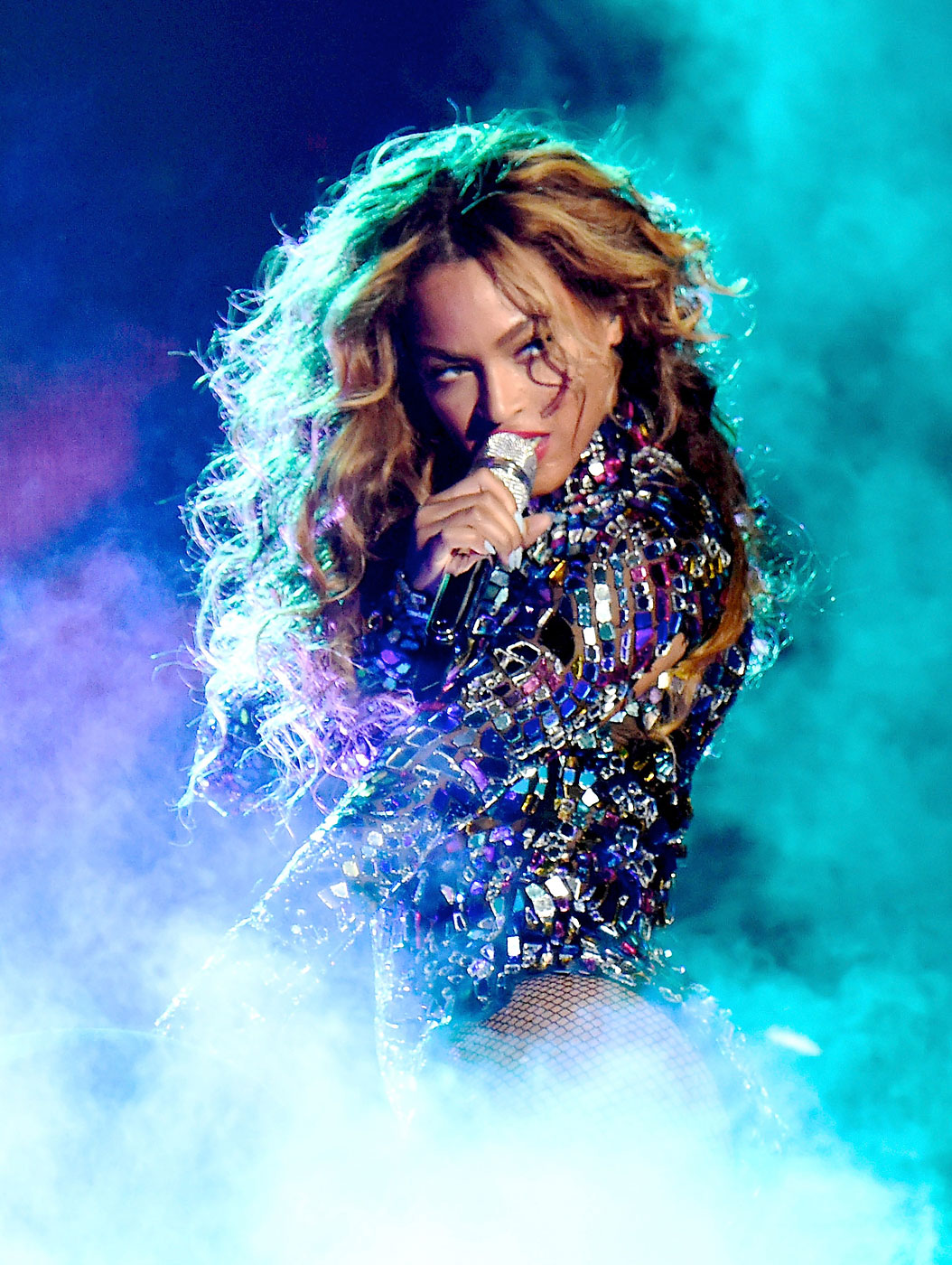
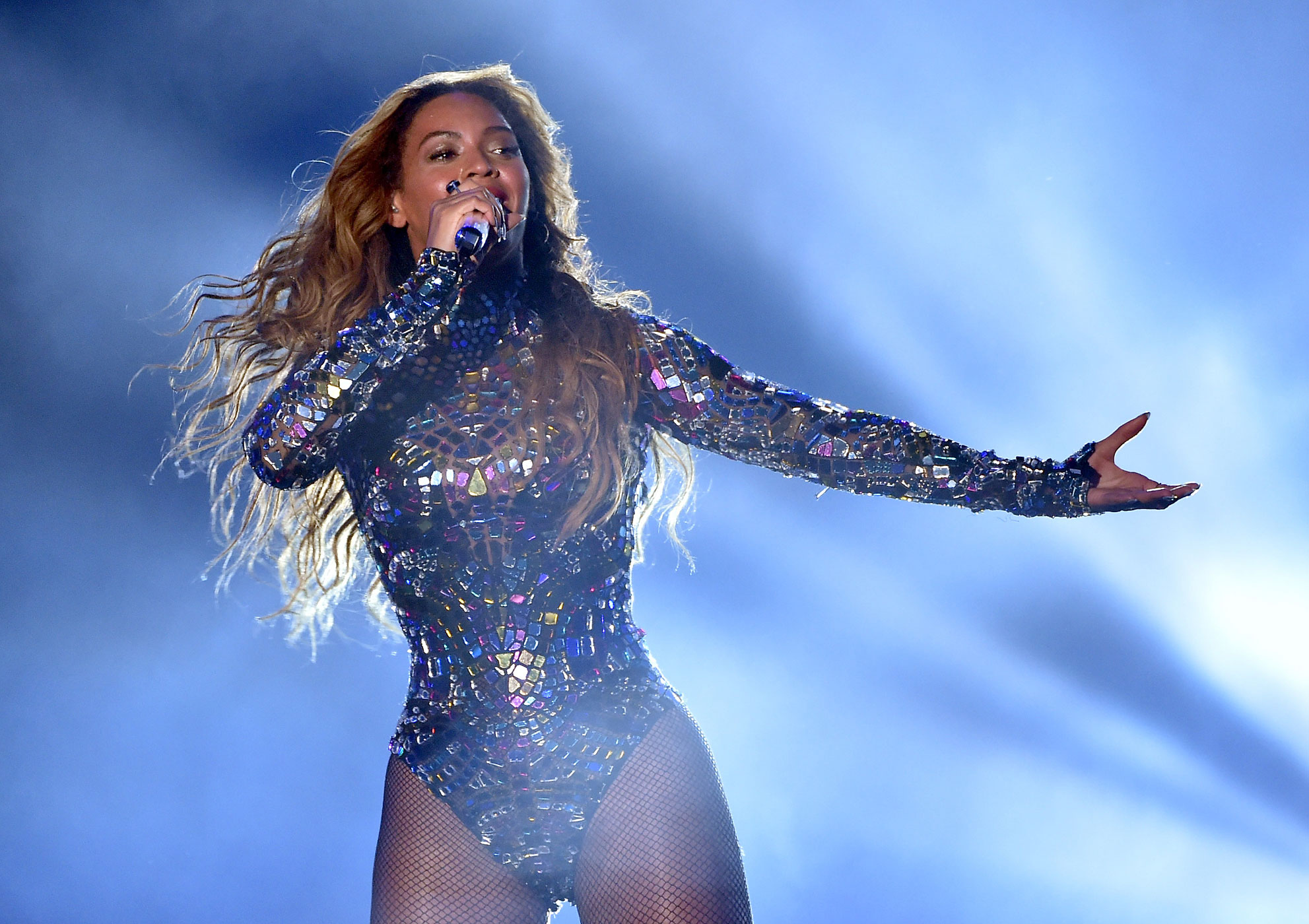
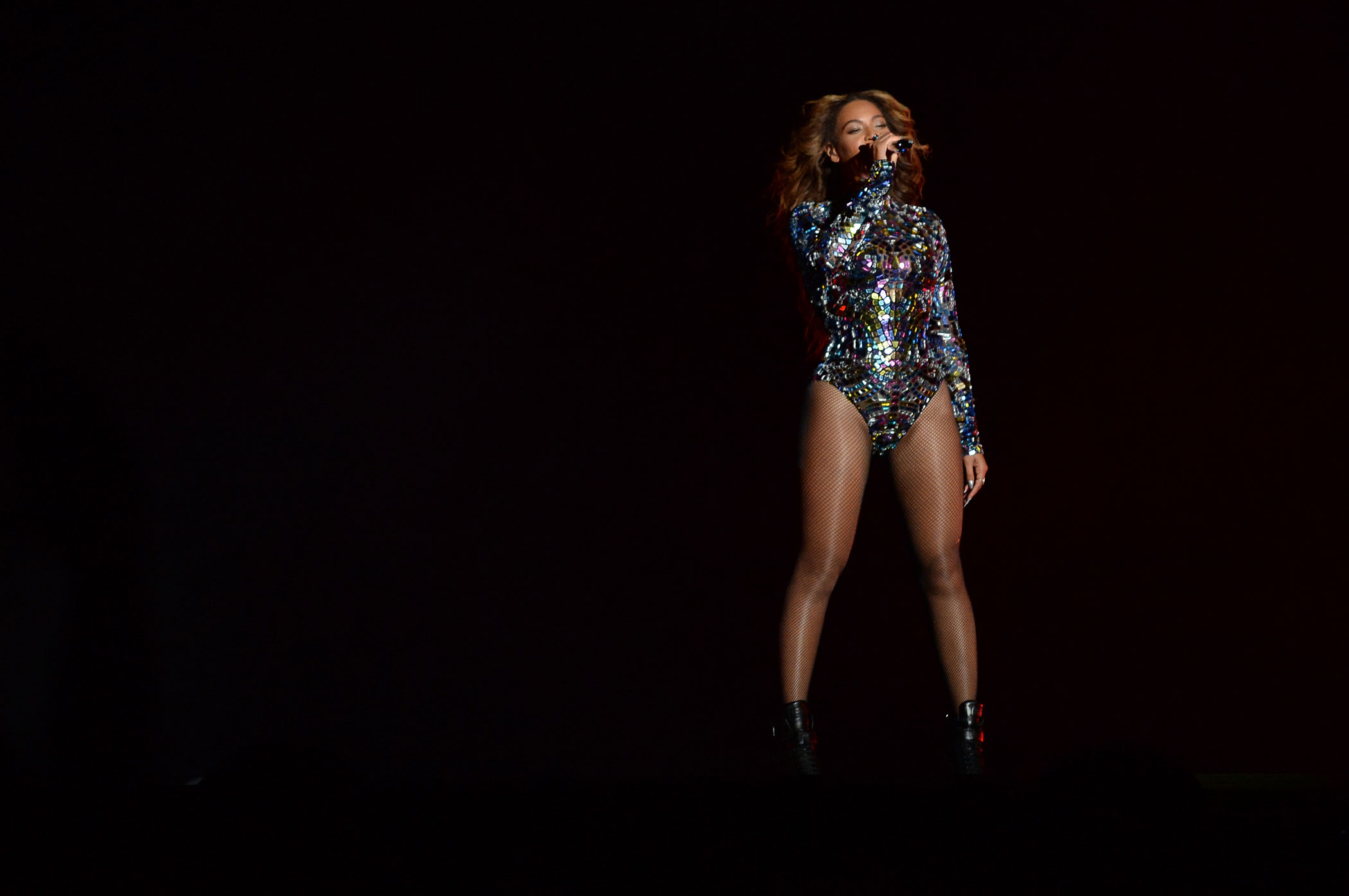
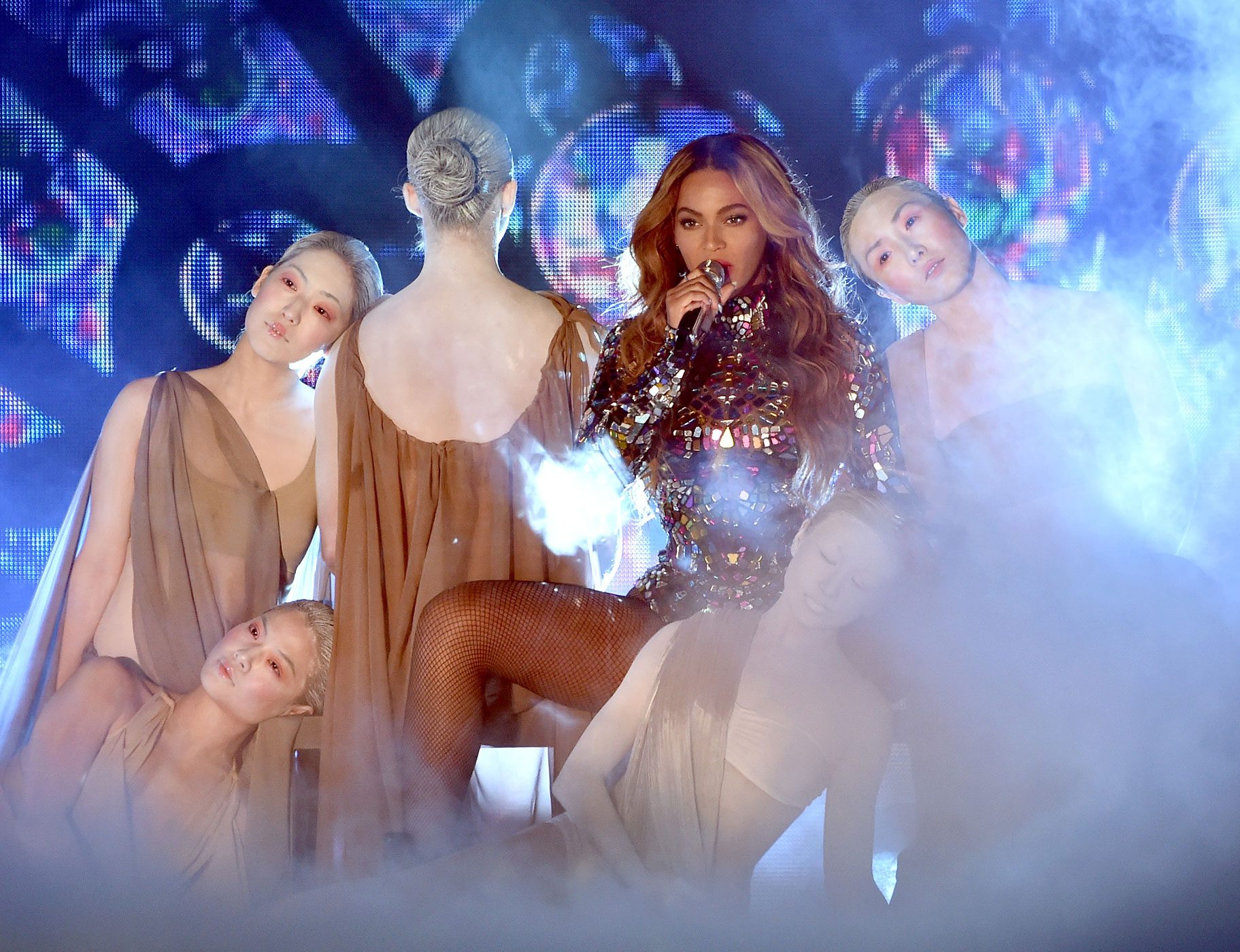
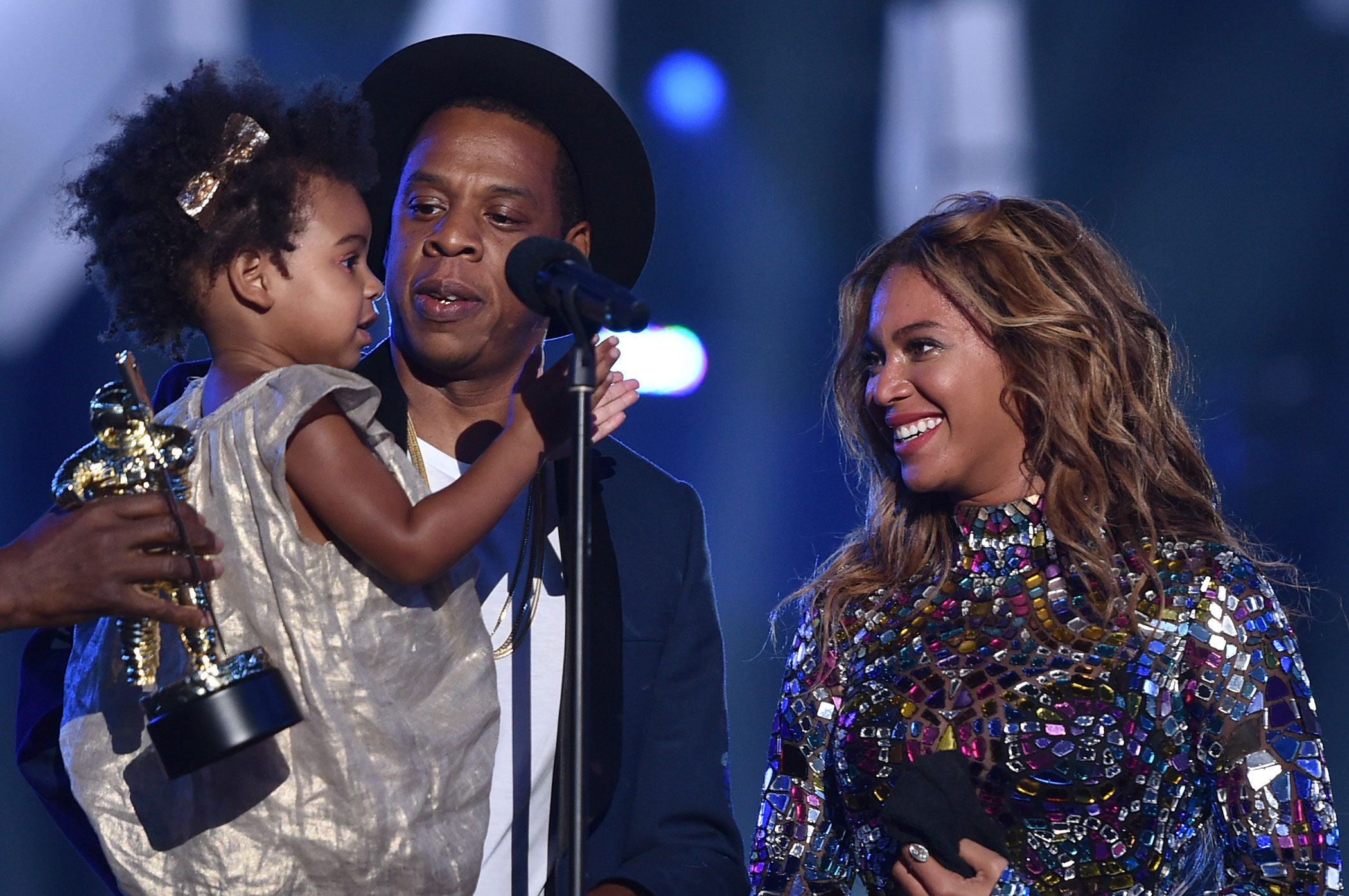
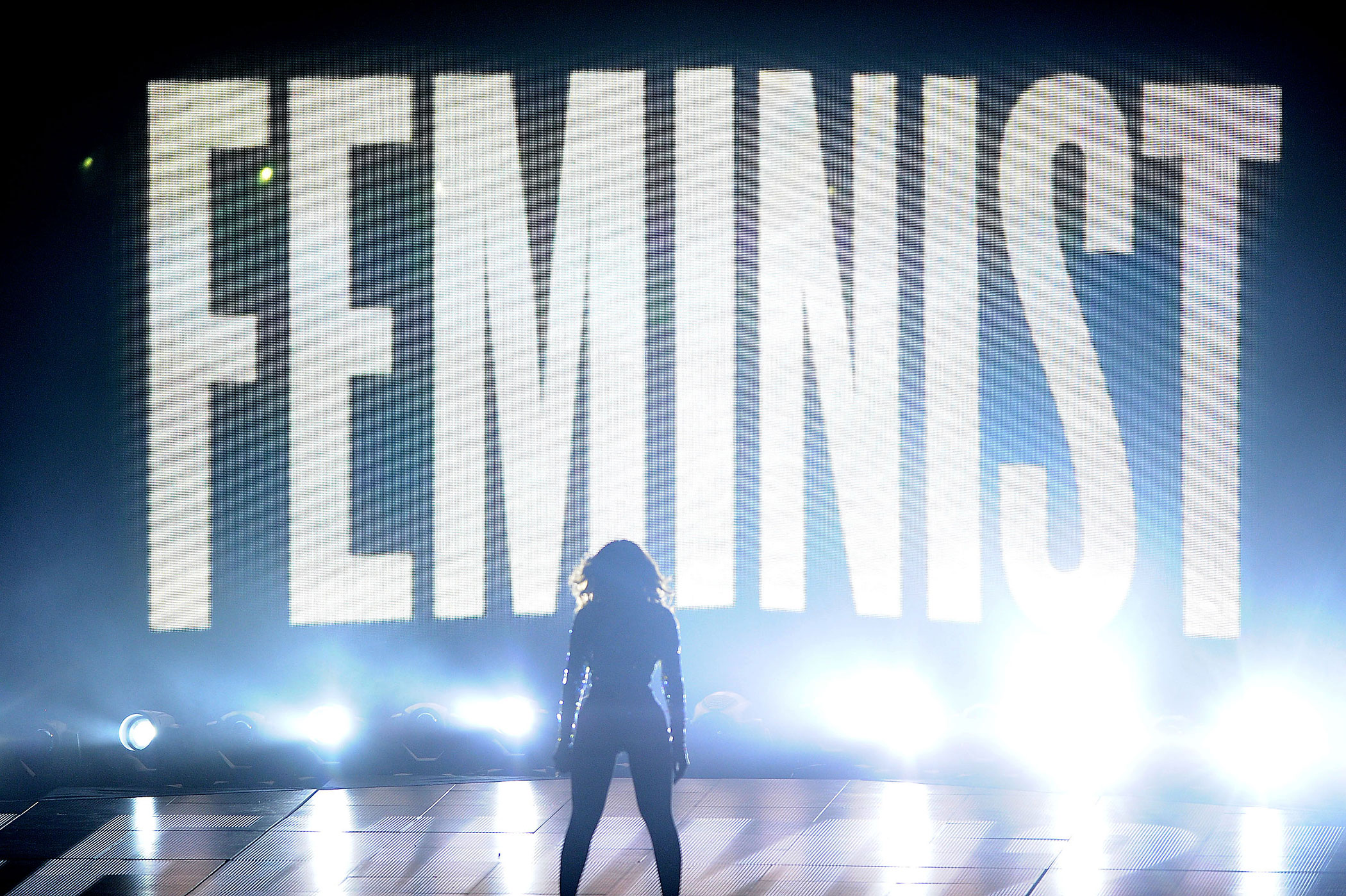
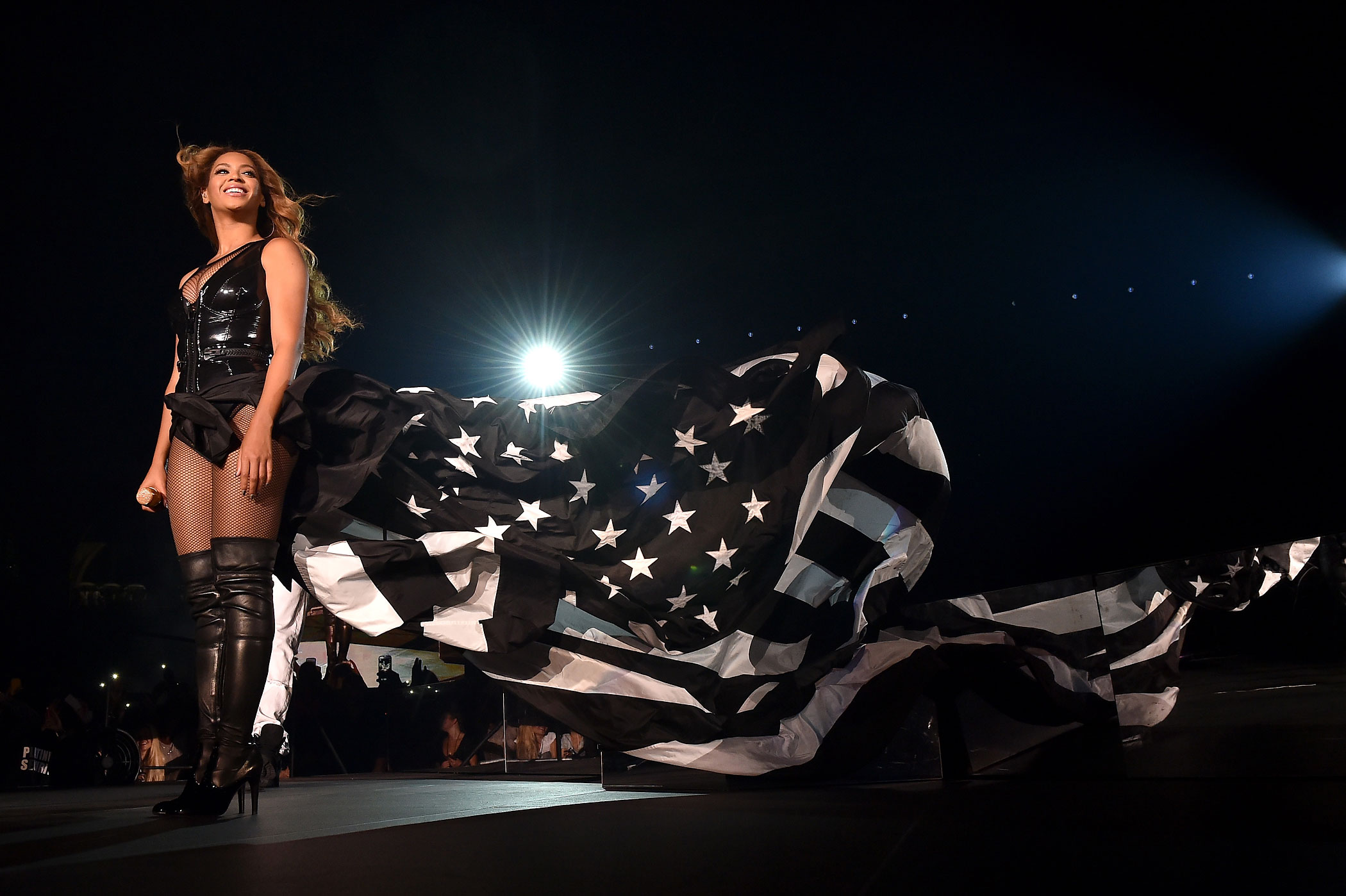
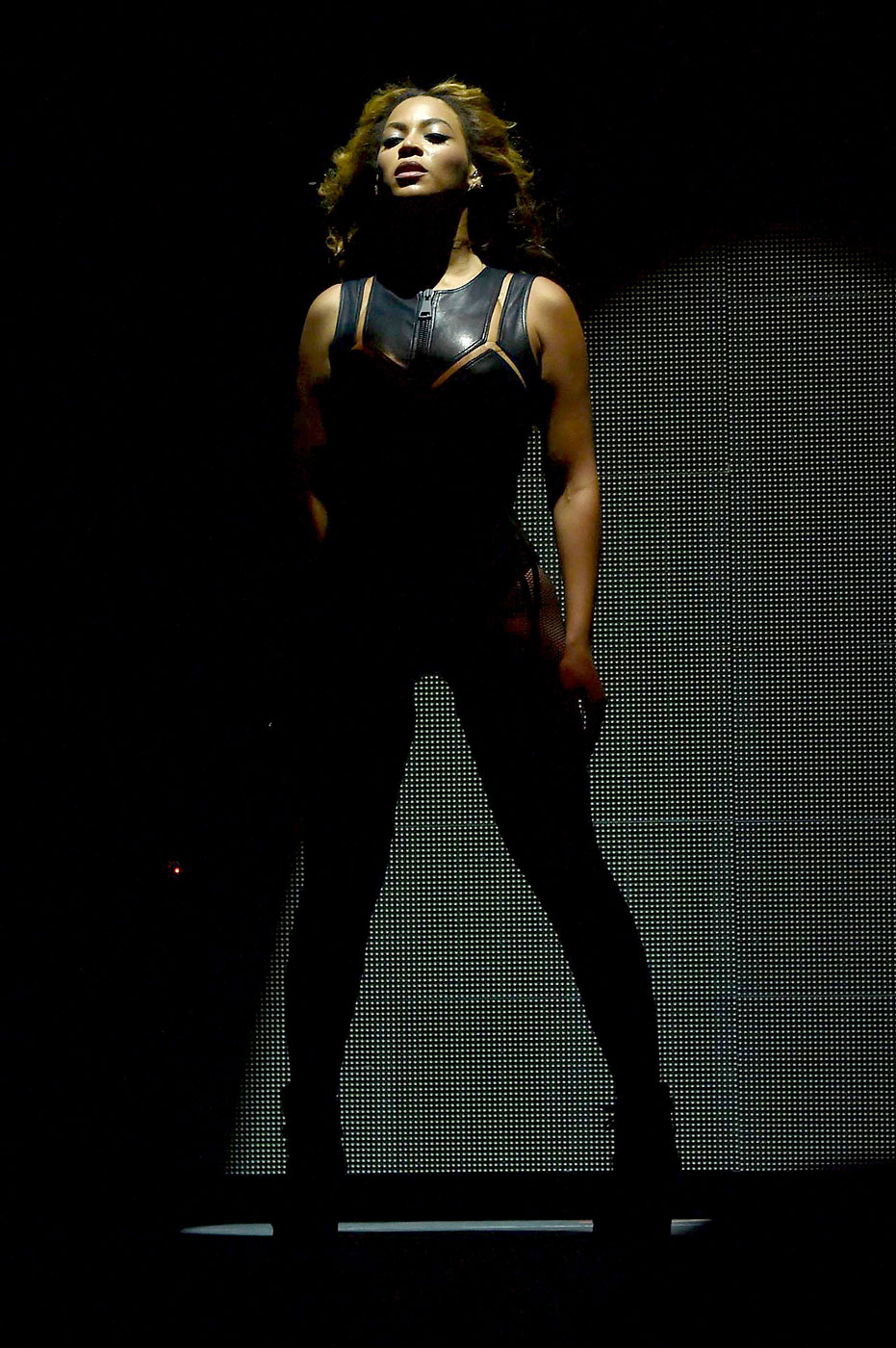
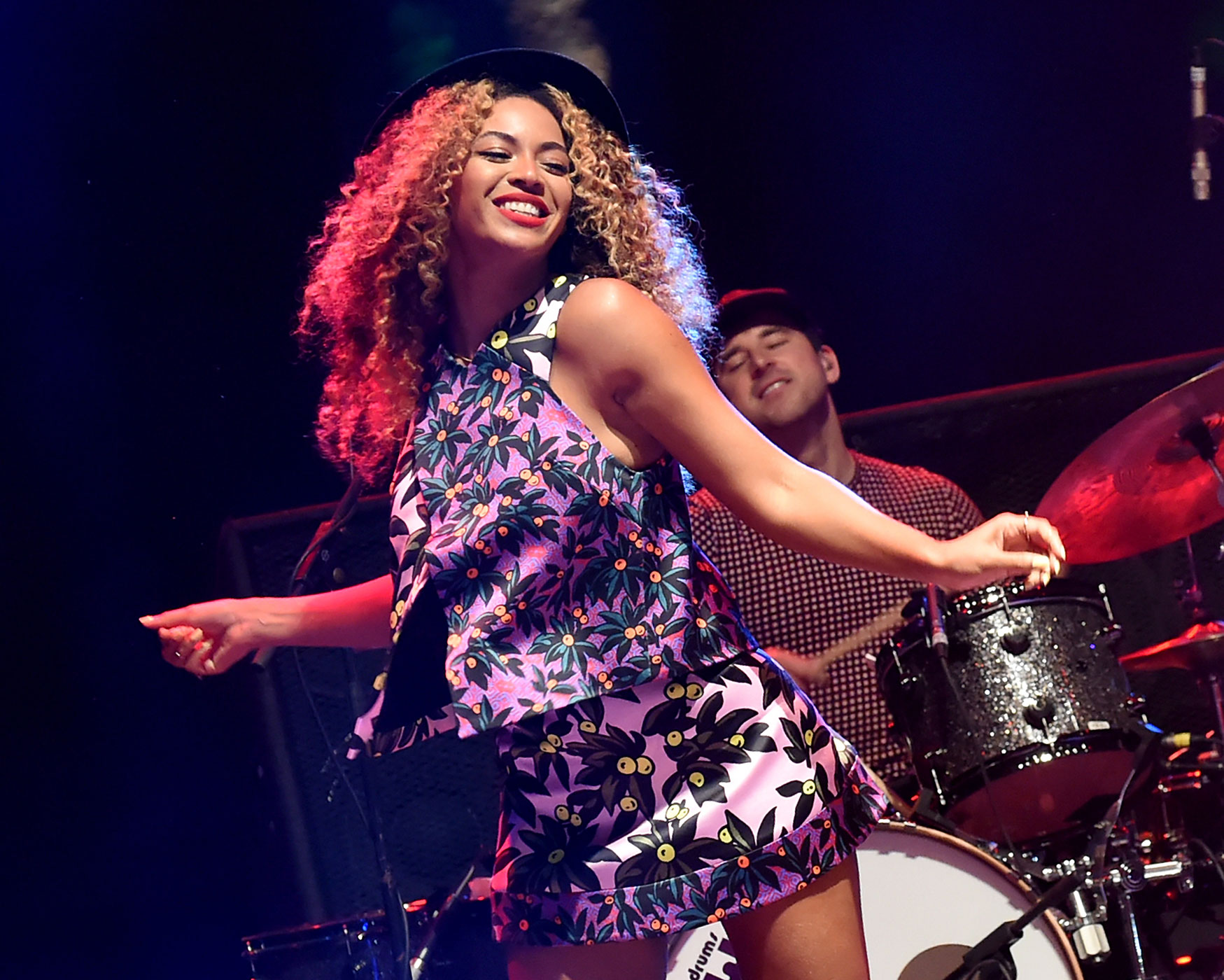

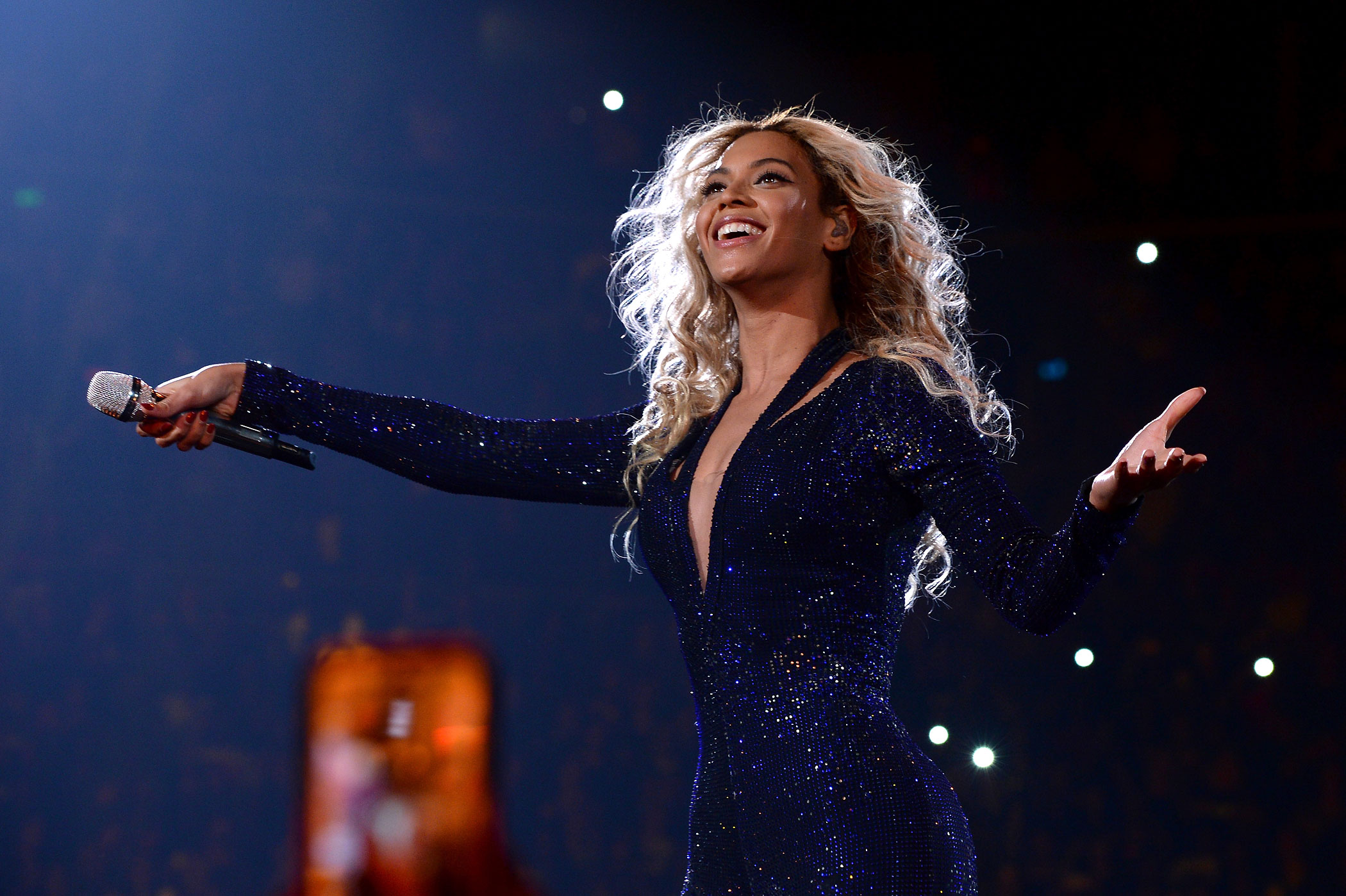

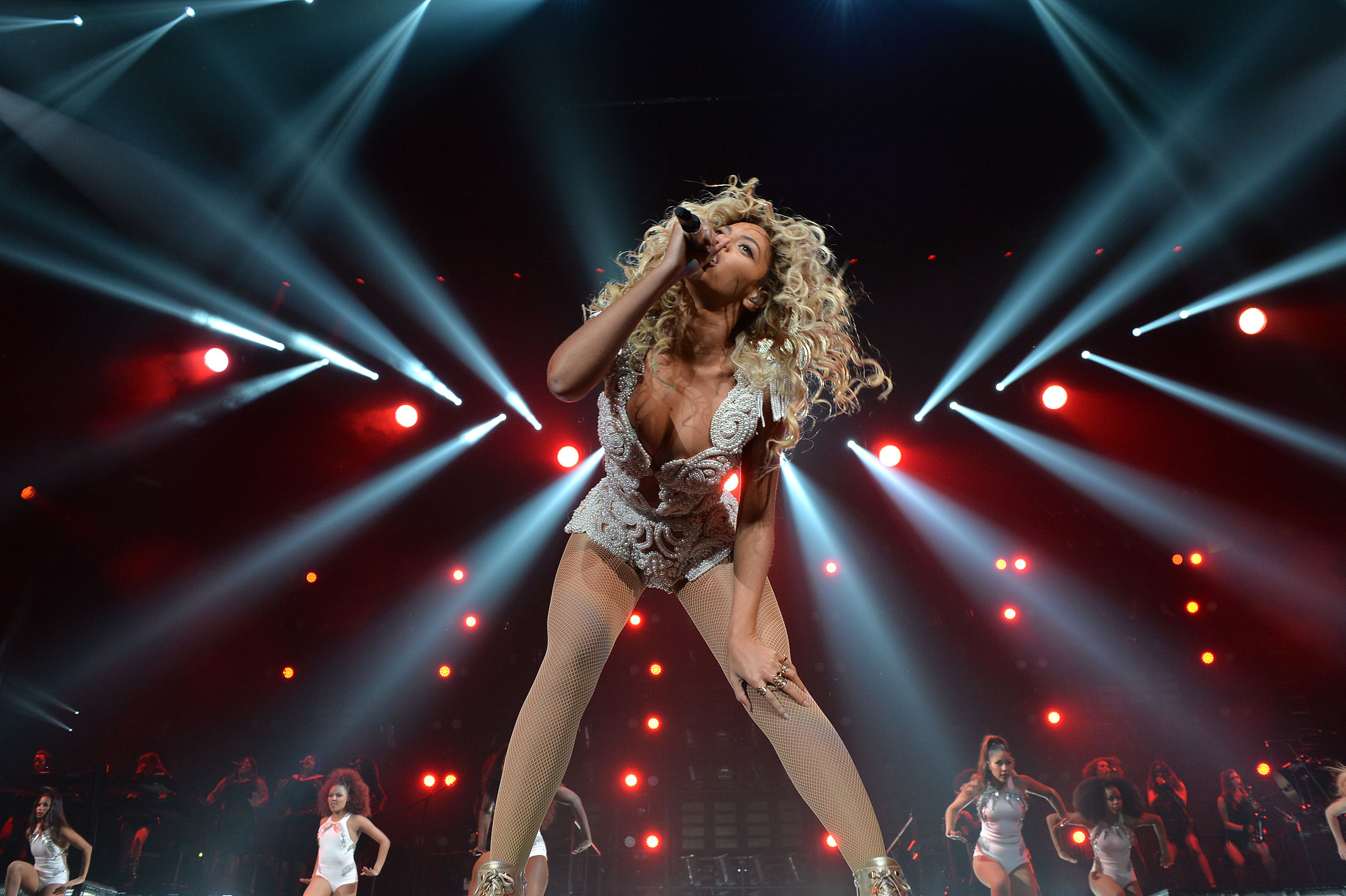
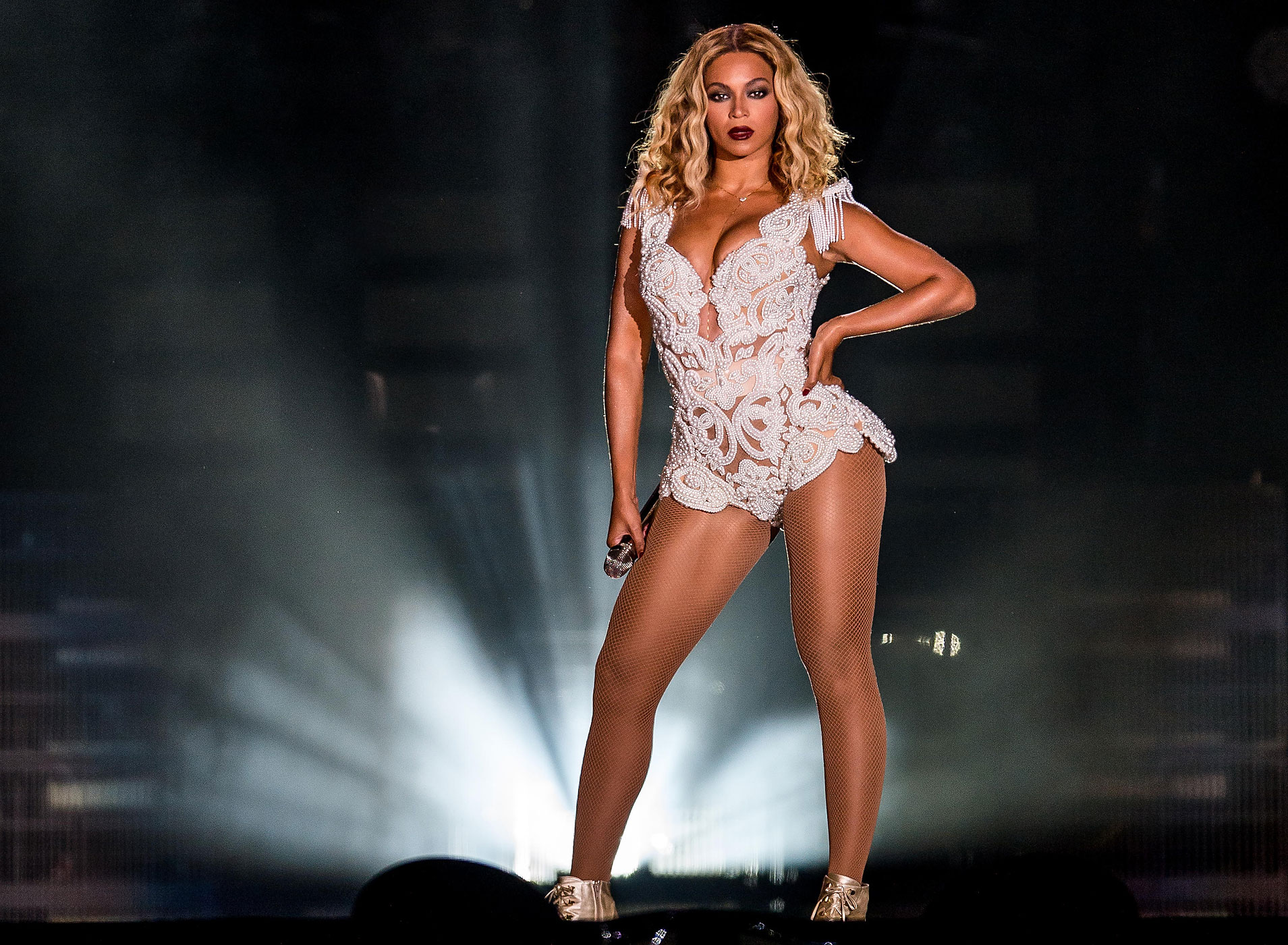
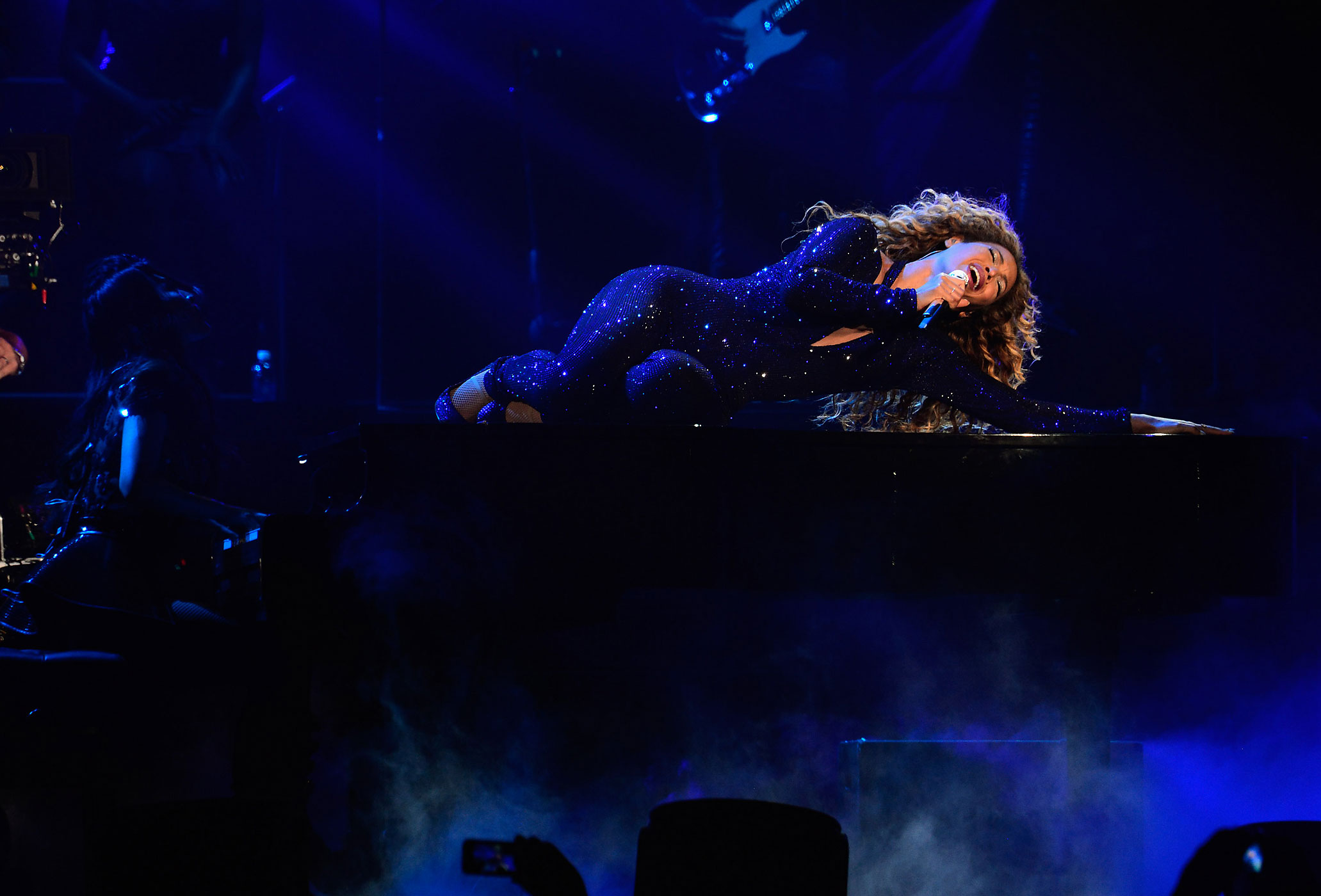
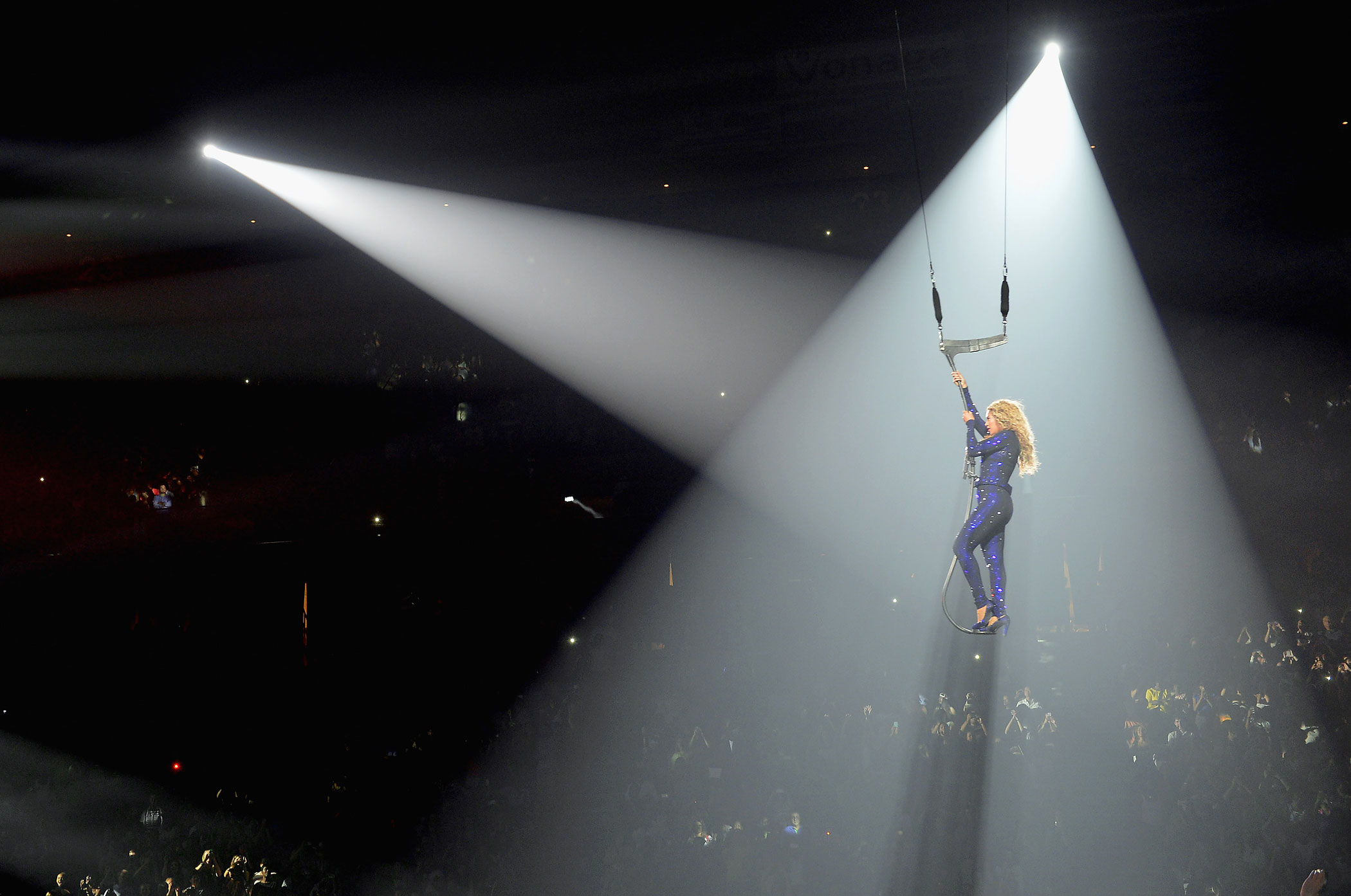
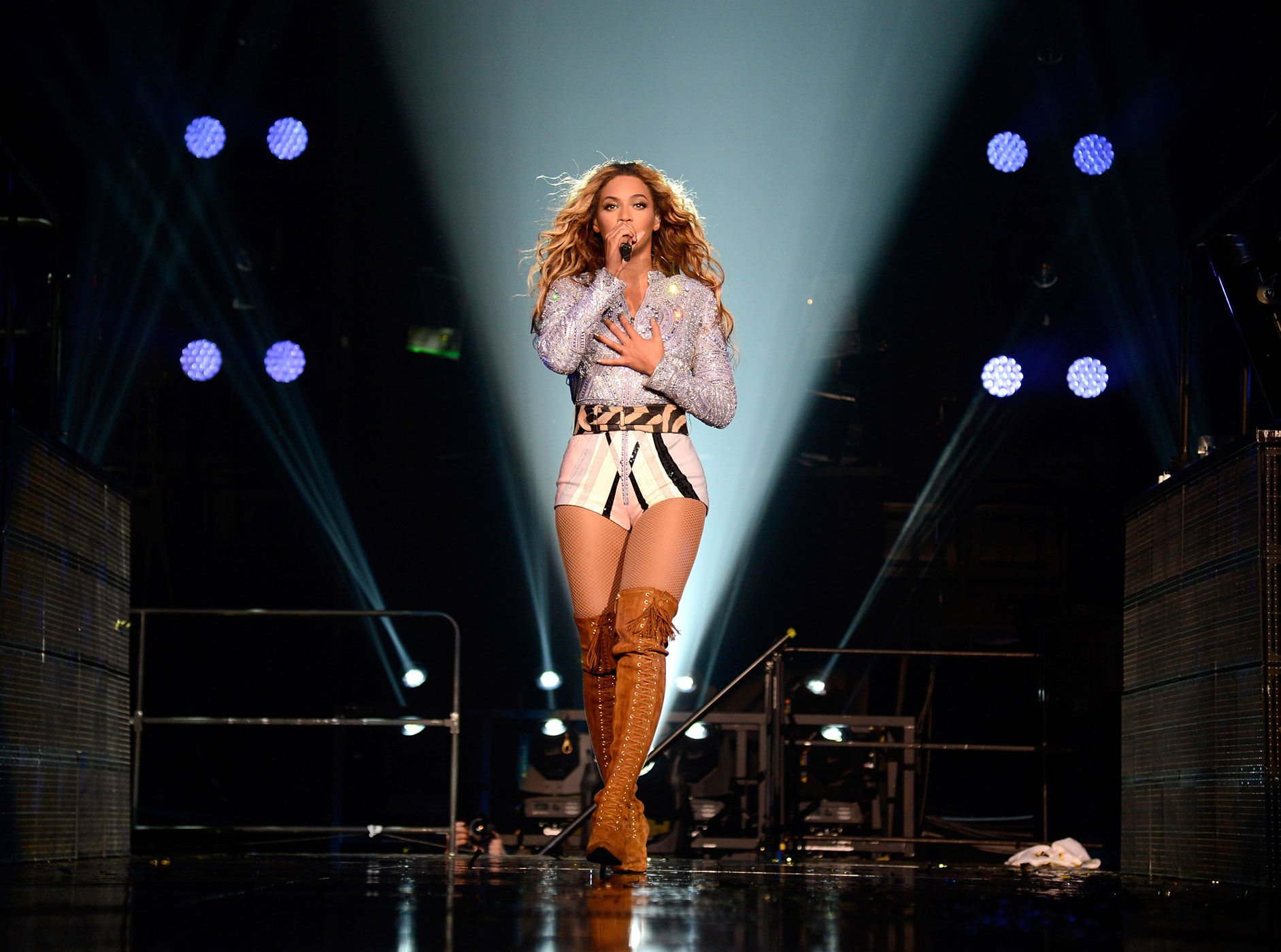
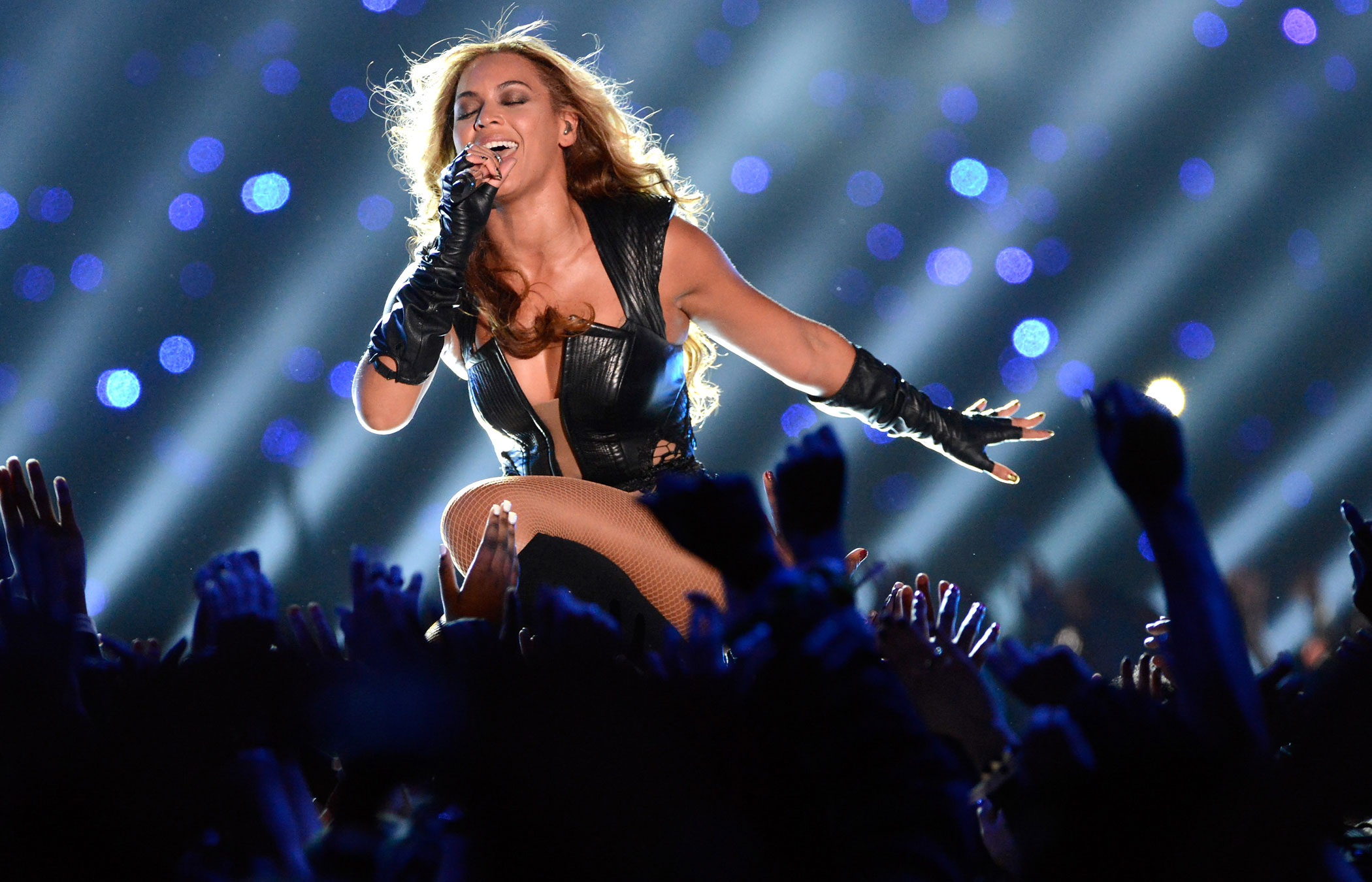
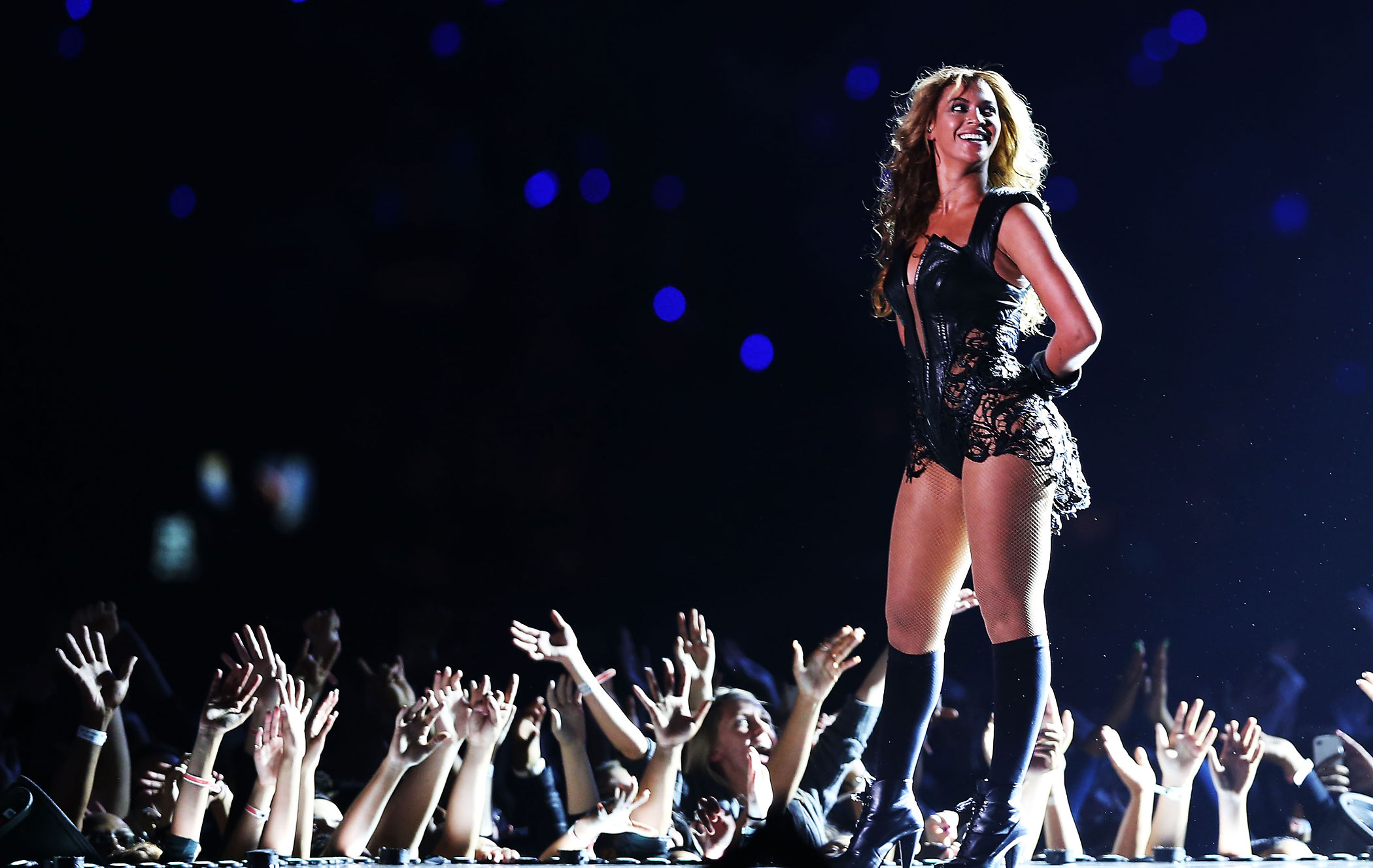
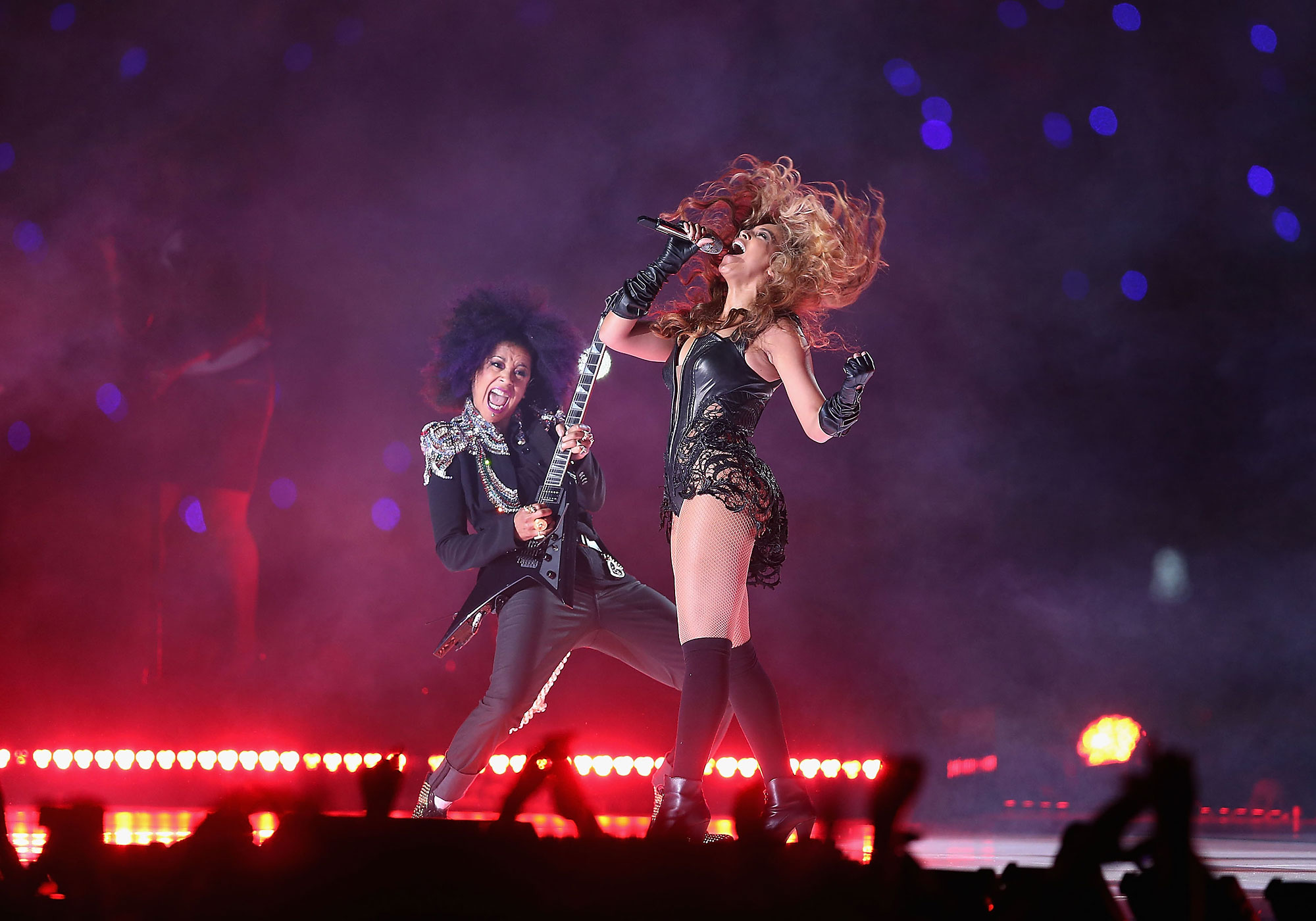

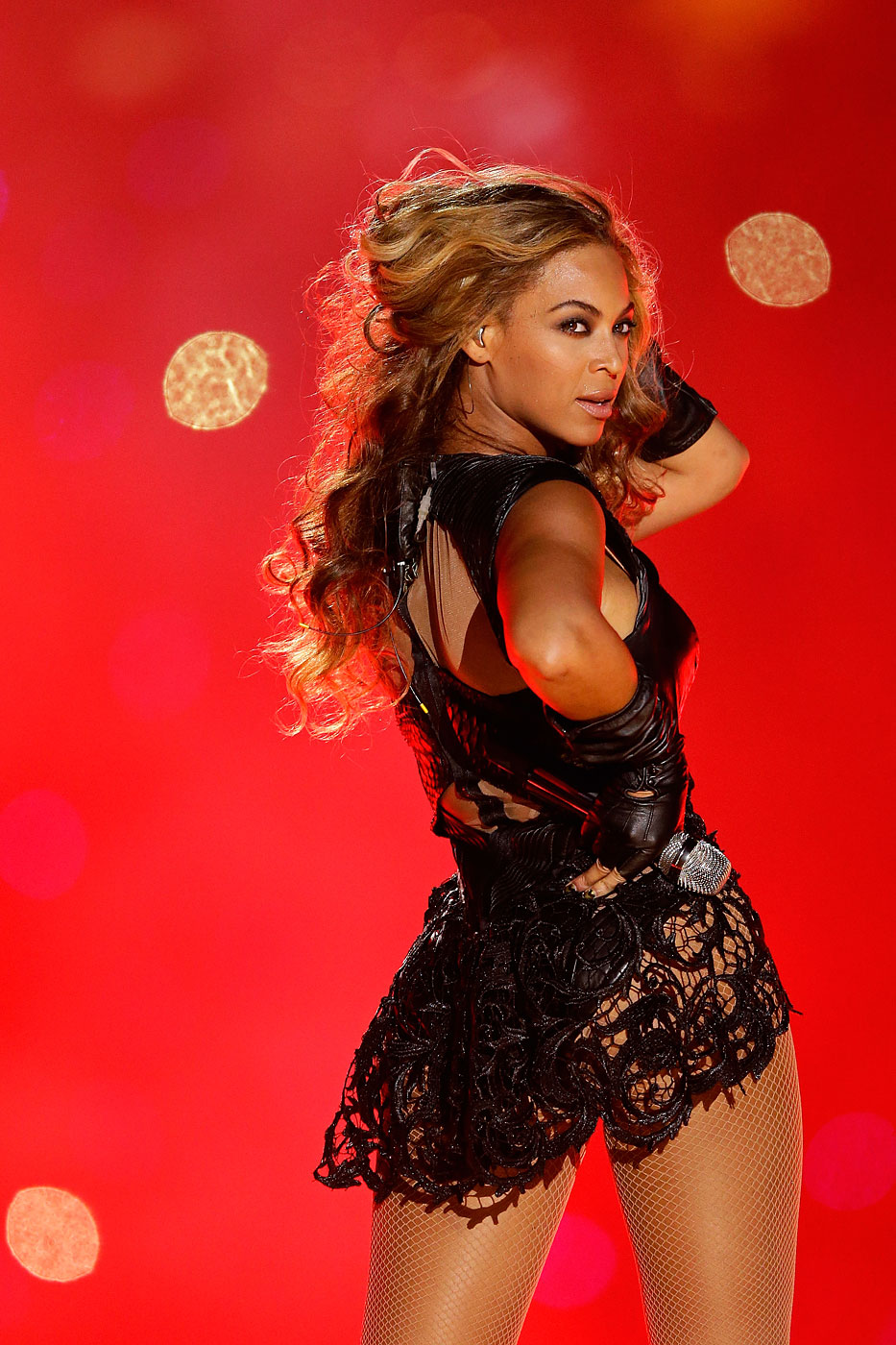
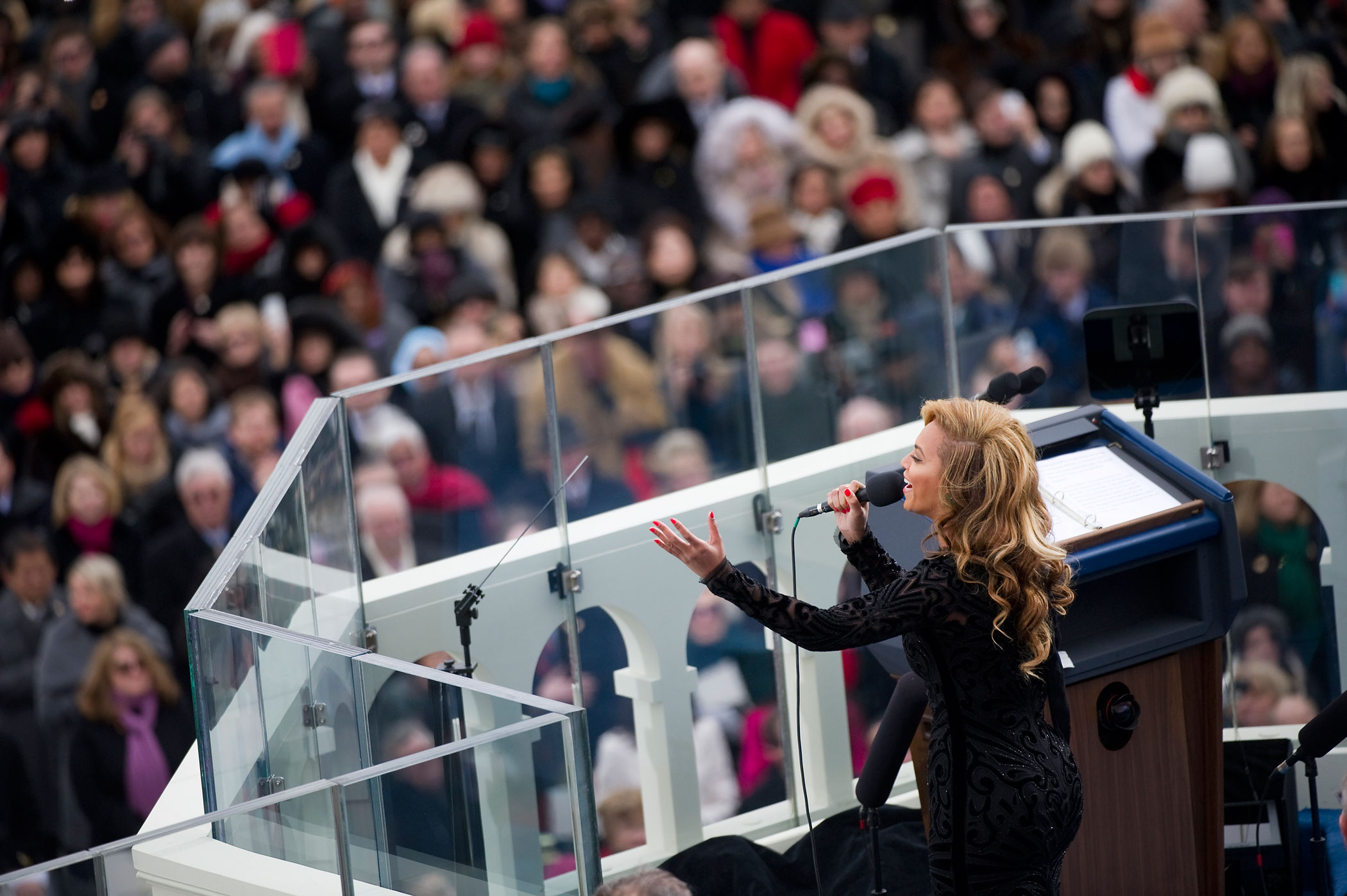
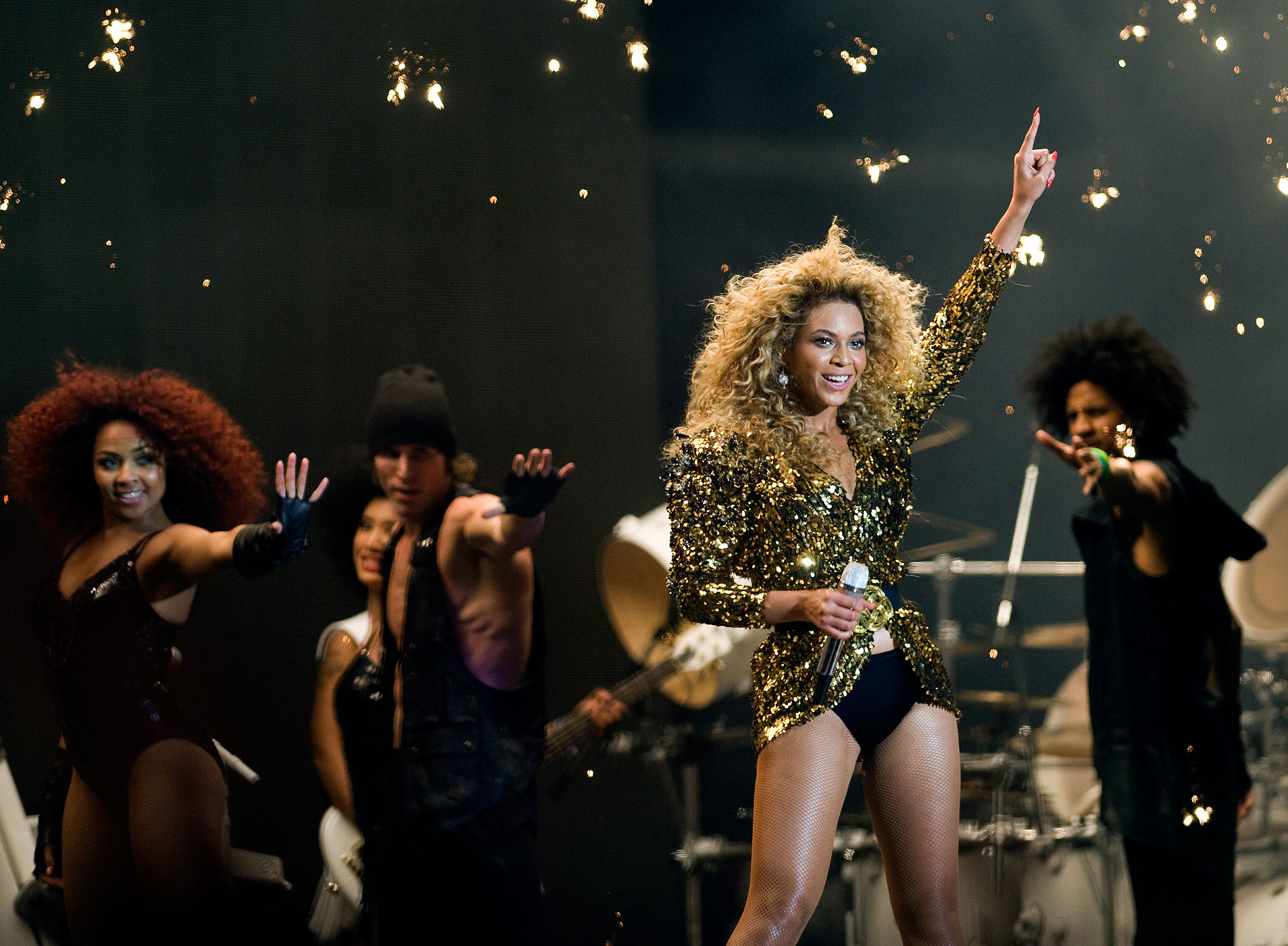
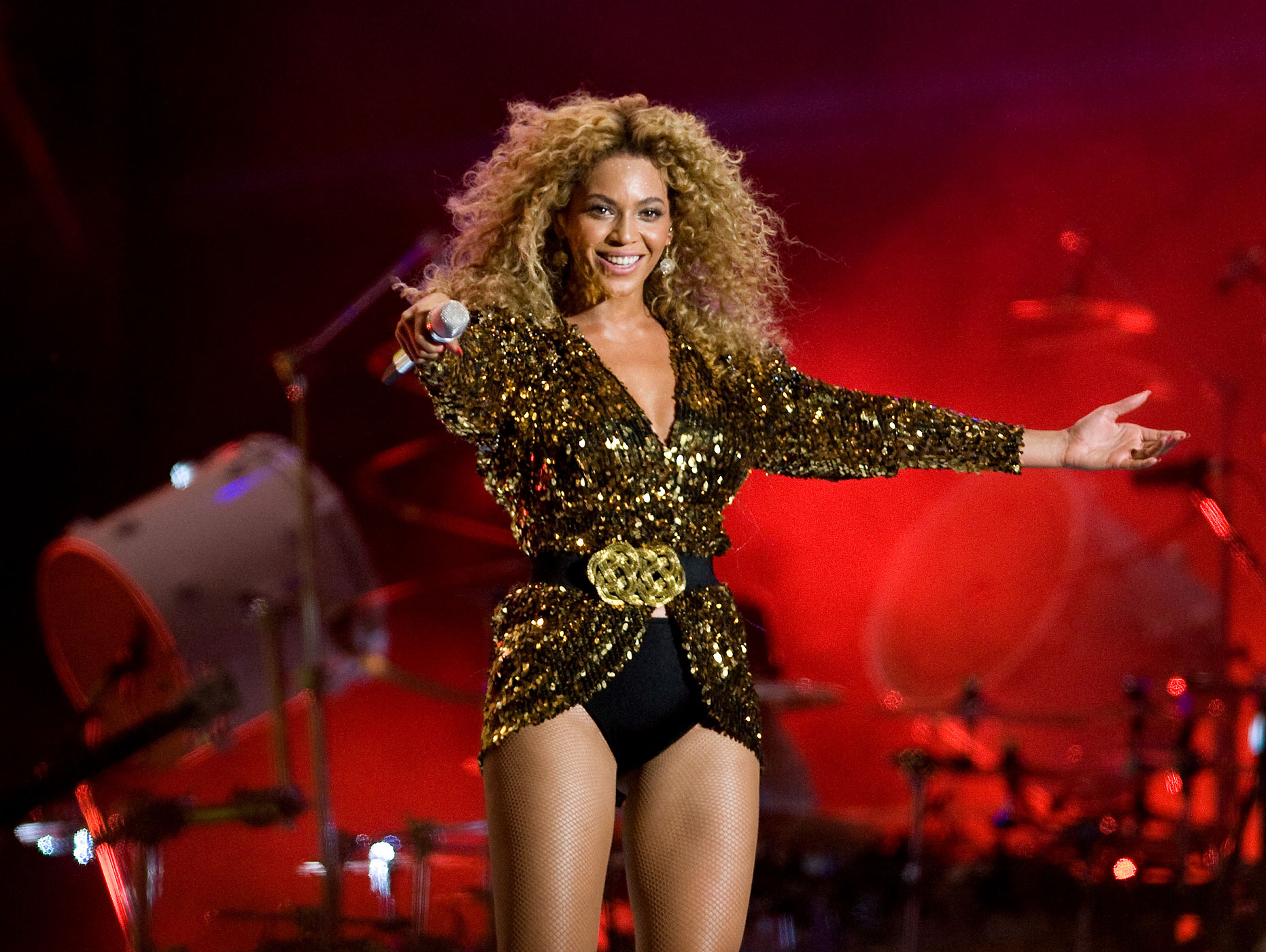
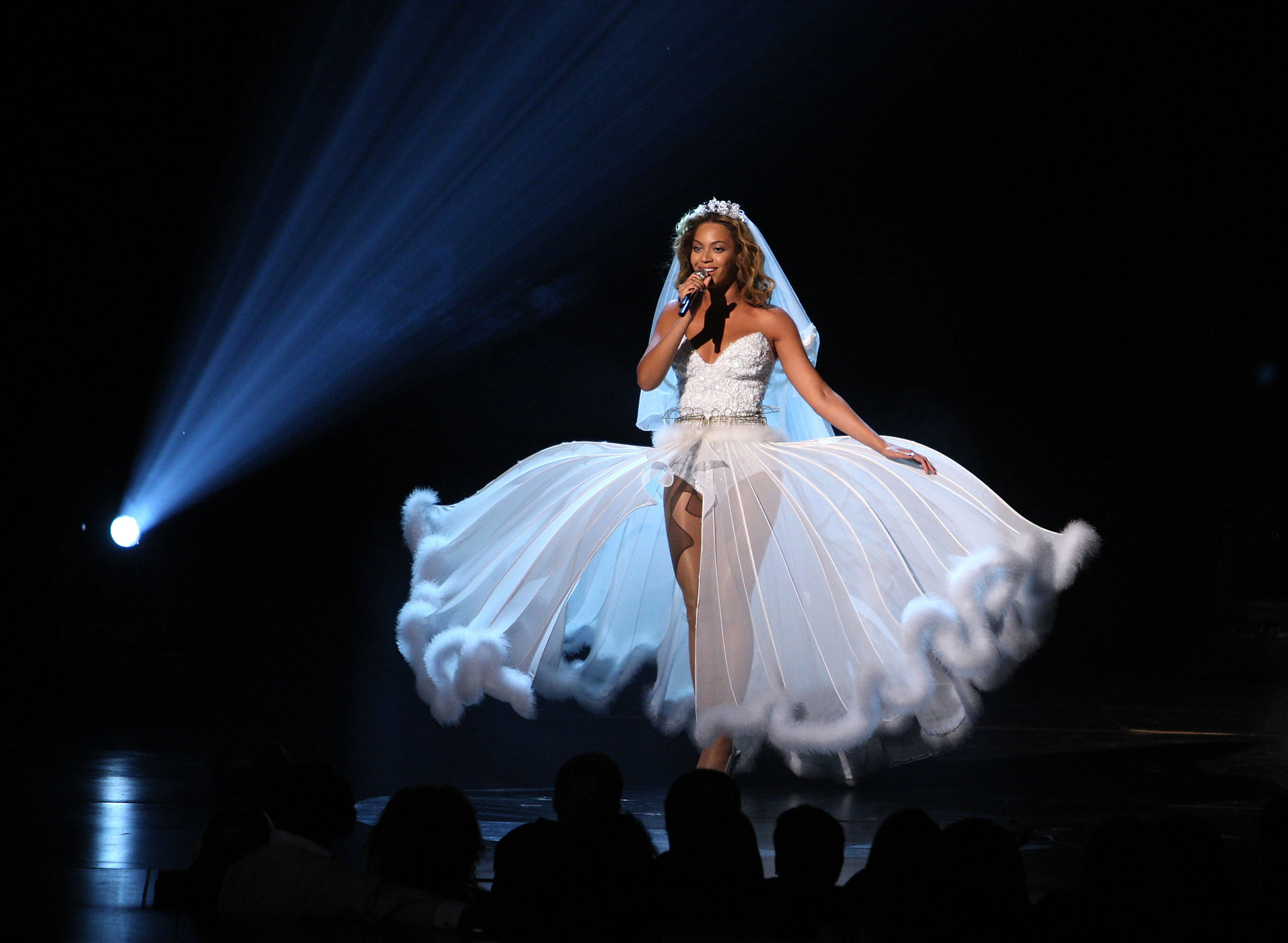

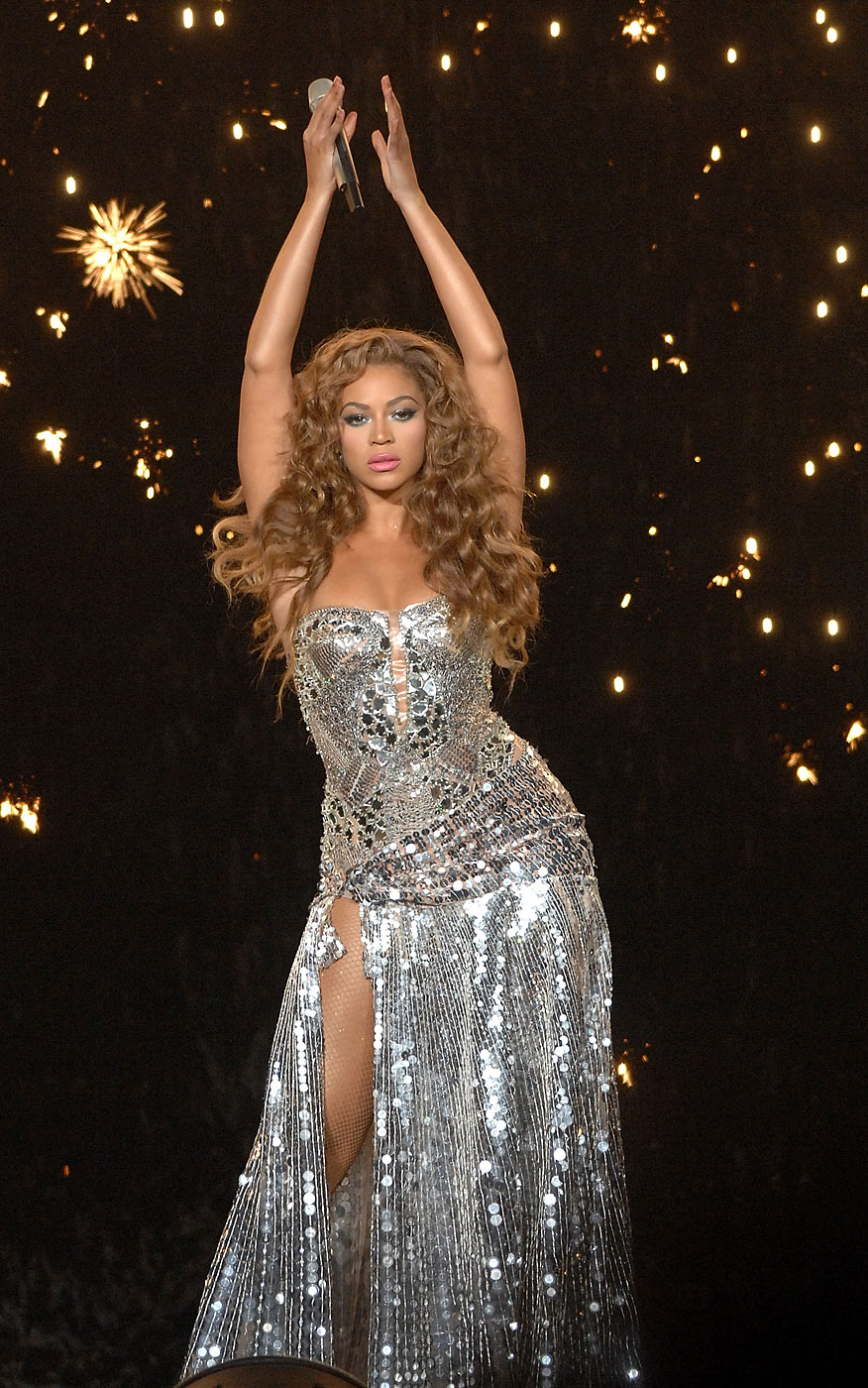

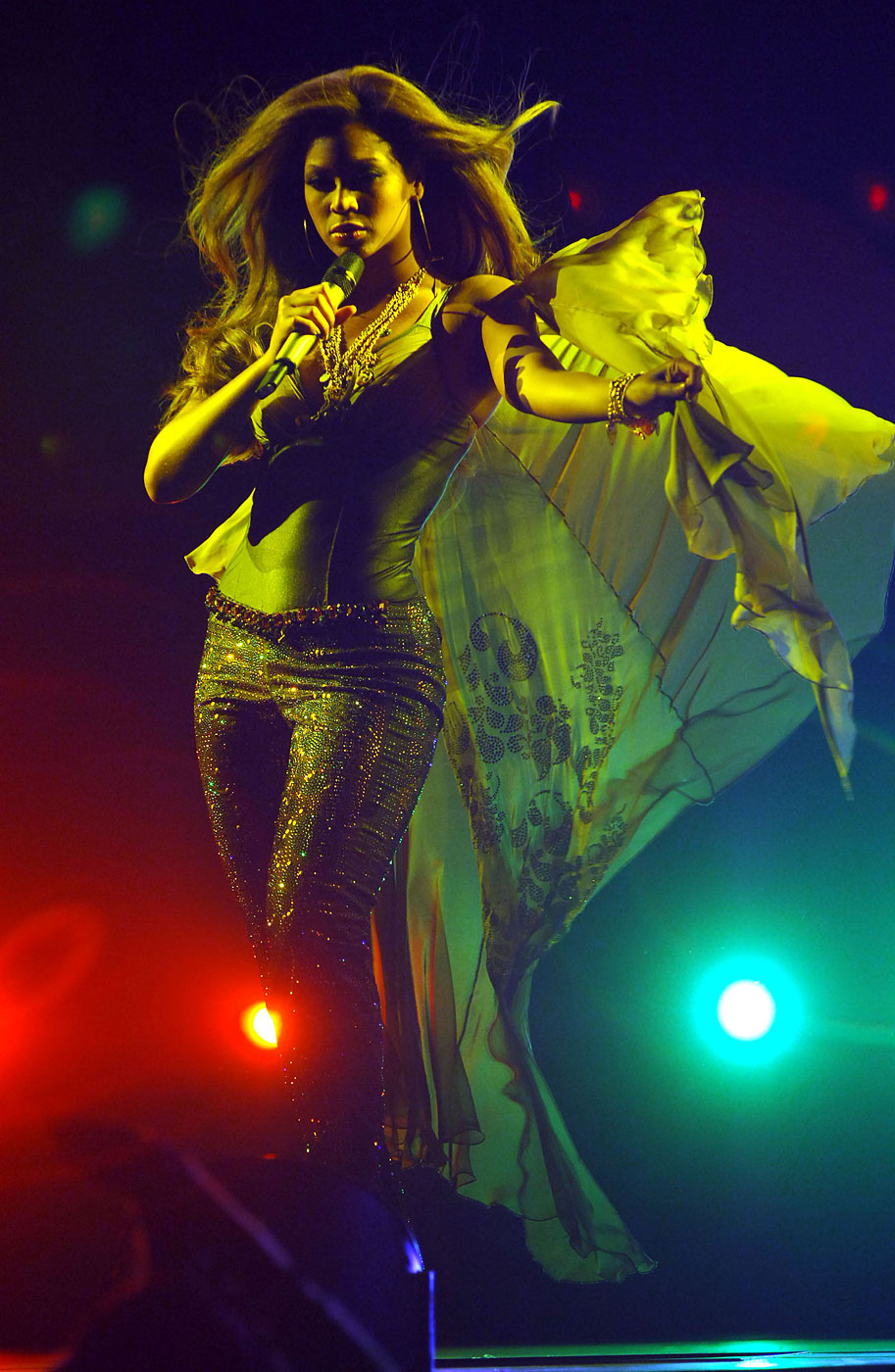

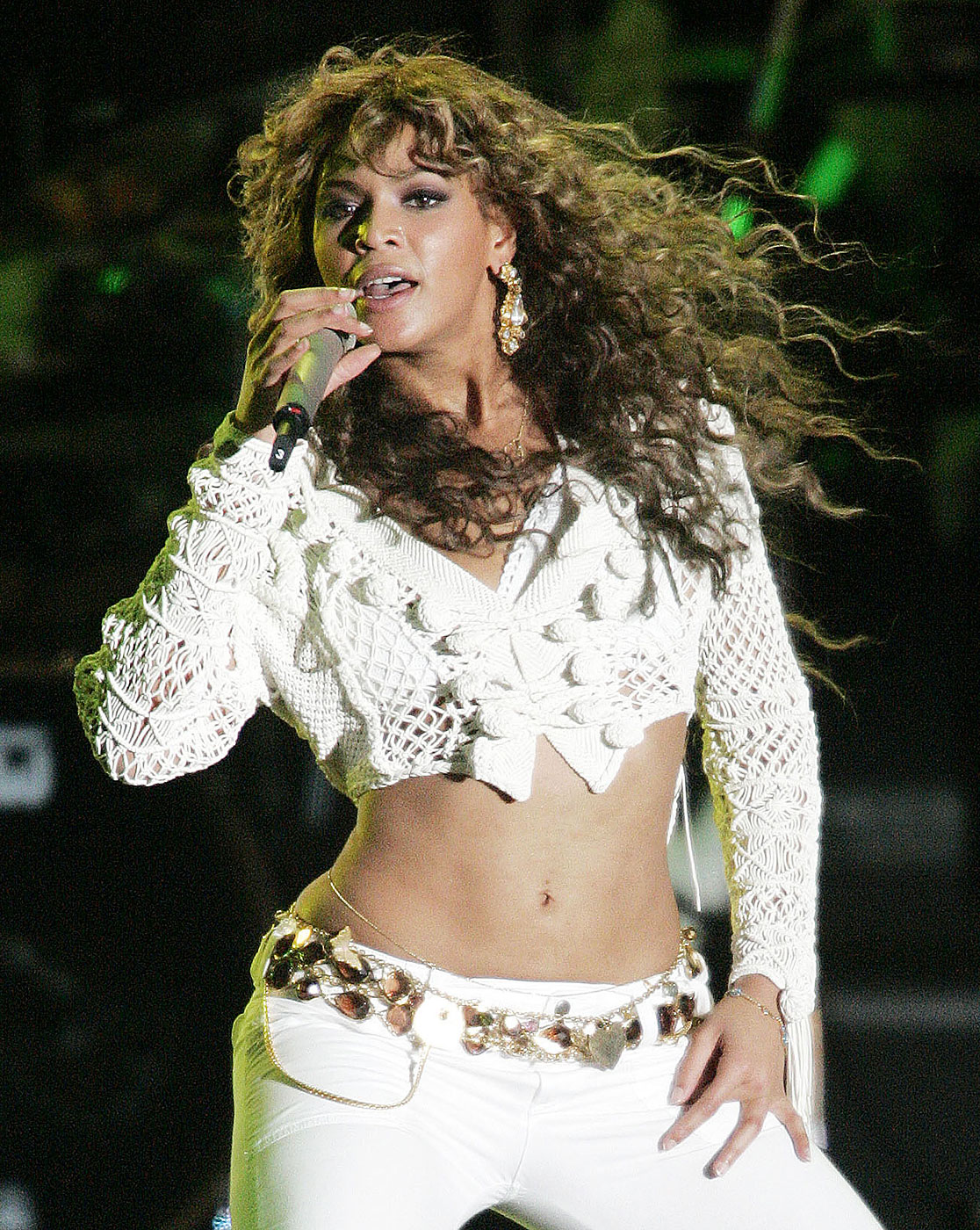
West also said, “And we as musicians have to inspire people who go to work every day, and they listen to that Beyonce album and they feel like it takes them to another place.” Given the length, critical acclaim, and success of his career, Beck has inspired people, too. So, West isn’t really talking about inspiration, he’s talking sales, equating popularity with artistry, which no one past 15 years old would do. Beyonce’s nominated album sold 1.3 million copies in the first 17 days of release. Beck’s winning album, Morning Phase, was the lowest selling Album of the Year nominee, with 301,000. If the Grammys weren’t rewarding artistry, what were they rewarding? Floppy hair?
But there is an underlying social issue at play here that West stumbled upon.
When West warns the Grammy people to “stop playing with us,” one can’t help but wonder if West’s use of the words “us” and “artistry” is code for “black artistry.” Especially considering his onstage rant at the 2009 MTV Music Awards when he grabbed the microphone from Taylor Swift, who’d just won for Best Female Video, and whined: “I’m sorry, but Beyonce had one of the best videos of all time.” Was his protest over Beyonce’s loss (FYI, Beyonce had 9 nominations and 3 wins that year) or the fact that an icon of white, virginal romance won over an icon of black, sexually charged dance?
It does a disservice to the very real struggle for racial equality to cry racism at every disappointment. Even if West didn’t set out to imply racism, his actions and language sent that message, which he should be savvy enough to realize. This is a distraction from the legitimate entrenched targets that need to be forcefully addressed. Some are obvious (as with the deaths of Michael Brown and Eric Garner) and some are subtle (as with the movement to require voter IDs as a means to discourage minority voters). These are very real daily threats to our lives and futures and Americans need to be relentless is spotting and eradicating injustice based on any bias, whether it be race, gender, age, religion, or sexual orientation.
Although West was wrong about the Grammy bias, Beyonce has indeed been the target of finger-wagging and shame-naming recently — from both Republican presidential hopeful Mike Huckabee and Fox pundit Bill O’Reilly, who have repeatedly criticized her as a poor role model because of the sexual content of her songs and performances. They’ve hauled out the statistic that 72% of black children are born out of wedlock (versus 29% for whites and 53% for Latinos). The problem with putting those two things together is that they’ve presented a basic logical fallacy: they offer no proof of any cause and effect. How does watching Beyonce, a married woman and mother — who sings to guys, “If you liked it then you should have put a ring on it” — inspire tweens and teens to rush out into unprotected pre-marital sex? Or are they just pandering to white Middle American stereotypes in order to win votes or ratings?
Jon Stewart pointed out the hypocrisy of this statement from Huckabee when he showed a tape on The Daily Show of Huckabee playing bass guitar for Ted Nugent while Nugent salaciously sang, “Well, I make the p—y purr with the stroke of my hand/They know they getting’ it from me.” Huckabee didn’t claim he was just being a PETA enthusiast, but acknowledged the sexual content, defending his participation by claiming his show was for adults. If we follow his “logic” about Beyonce, this song will make teen boys take to the streets in frenzied determination to impregnate any girl they find.
Like Kanye West, Huckabee and O’Reilly want to suggest connections that aren’t there. It’s even more insidious in Huckabee and O’Reilly’s case because their accusations blame the victims while ignoring the real cause: poverty. Poverty reduces the chance for a meaningful education that will elevate the poor out of poverty. Poverty reduces job opportunities for those not able to seek higher education. Poverty creates a fertile ground for drug use. Poverty makes black men more likely to be arrested for doing the same crime as a white member of the middle class. Poverty makes people desperate and makes them feel unworthy of love, which is more likely to cause an out-of-wedlock pregnancy. This poverty is part of the institutional racism that breaks apart families and communities. Not Beyonce dancing and singing. But poverty is a more complex issue, and it makes for better TV to show photos of scantily dressed Beyonce to keep their audience’s interest.
“The white imagination is sure something when it comes to blacks,” said Josephine Baker. Baker was an ex-pat performer whose sensual dances were both artistic and a parody of whites’ fantasy perceptions of black women’s overt “jungle” sexuality. In Paris, where she rose to fame, she was praised by Langston Hughes, Ernest Hemingway, F. Scott Fitzgerald, Pablo Picasso, and Christian Dior. When she returned to America to duplicate her success abroad, she was disappointed when the large audiences failed to appear and one critic dismissed her as a “Negro wench.”
Today, we have that same paternalistic attitude of old white men claiming they know what’s best for young black women. Ironically, Kanye West has a lot in common with Huckabee and O’Reilly. In defending Beyonce, he, too, acted in a paternalistic way, as if he were some noble knight riding in to protect a damsel in distress. Beyonce, who is a much more powerful force in the music business than West, has proven she is fully capable of speaking for herself. Women in general, and Beyonce in particular, don’t need any of them (or me, for that matter) to defend their honor.
Bottom line: West’s comments defending Beyonce were a little racist because he implied that a black artist was being ignored in favor of a white non-artist. Huckabee and O’Reilly’s criticism of Beyonce were also a little racist because they implied that sensual entertainment results in unwed pregnancies. So, while all three were a little racist and all three were very sexist, all three were attempting to censor free expression. That’s the trifecta of discrimination and repression.
Read next: This May Have Been the Best Year For Women Since the Dawn of Time
More Must-Reads from TIME
- Cybersecurity Experts Are Sounding the Alarm on DOGE
- Meet the 2025 Women of the Year
- The Harsh Truth About Disability Inclusion
- Why Do More Young Adults Have Cancer?
- Colman Domingo Leads With Radical Love
- How to Get Better at Doing Things Alone
- Michelle Zauner Stares Down the Darkness
Contact us at letters@time.com